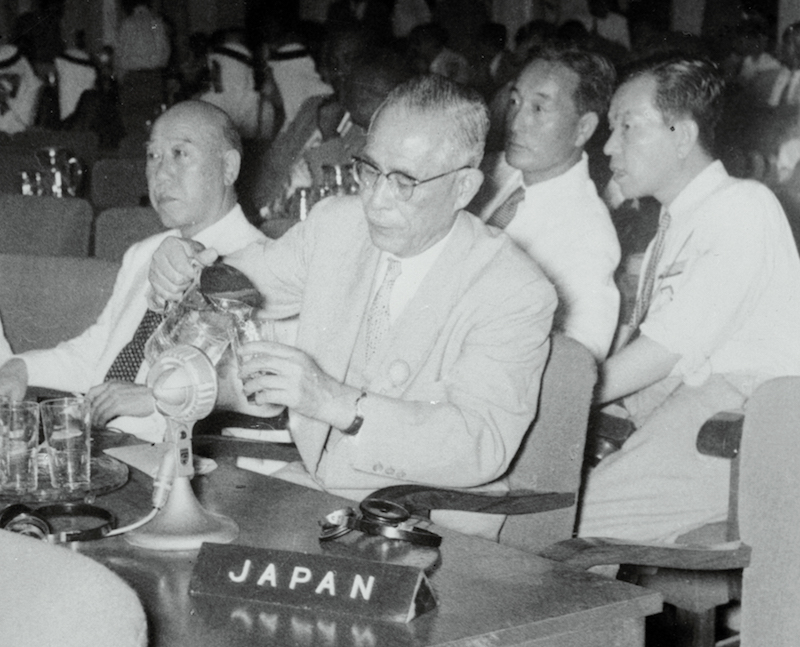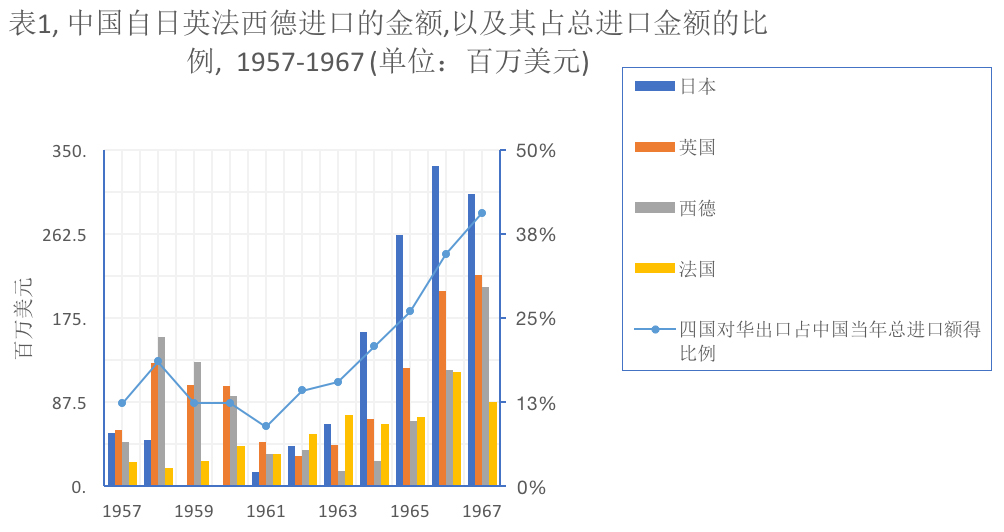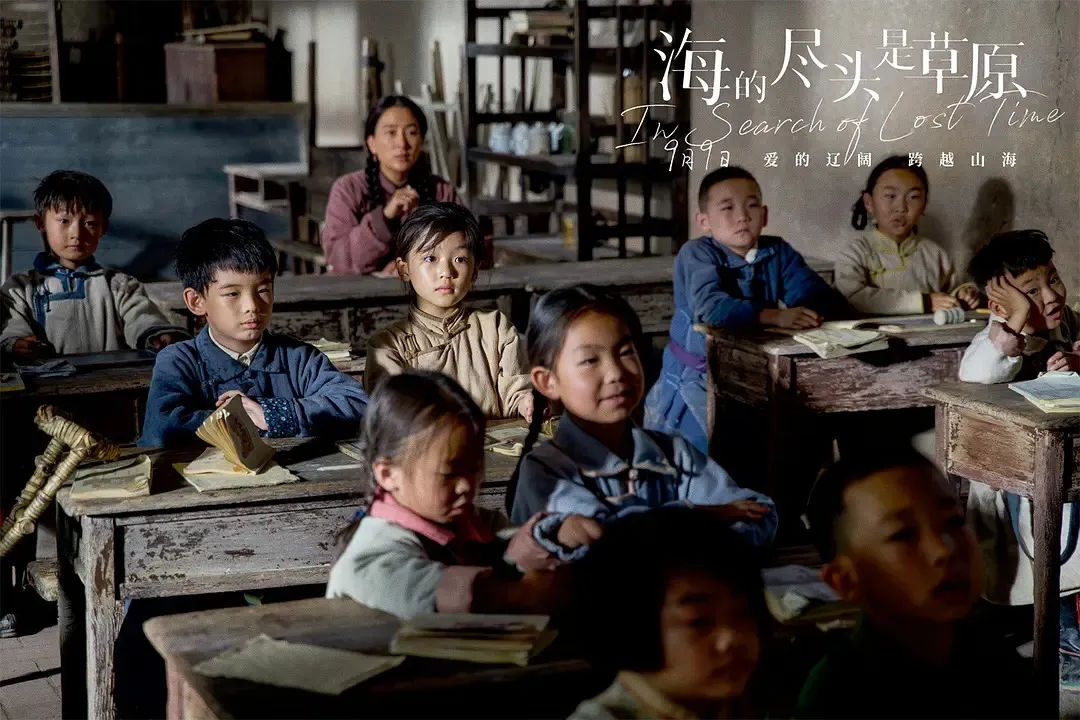Part III Contract
General rules for Part I
Chapter I General Provisions
Article 463 This Part regulates civil relations arising from contracts.
Article 464 A contract is an agreement between civil subjects to establish, change or terminate a civil legal relationship.
Agreements on identity relations such as marriage, adoption and guardianship shall be governed by the legal provisions on such identity relations; If there are no provisions, the provisions of this part can be applied according to their nature.
Article 465 A lawfully formed contract shall be protected by law.
A legally established contract is legally binding only on the parties, except as otherwise provided by law.
Article 466 If the parties have disputes over the understanding of the terms of the contract, they shall determine the meaning of the disputed terms in accordance with the provisions of the first paragraph of Article 142 of this Law.
Where a contract text is concluded in two or more languages and the agreement is equally authentic, the words and expressions used in each text are presumed to have the same meaning. If the words and expressions used in each text are inconsistent, they shall be interpreted according to the relevant terms, nature, purpose and principle of good faith of the contract.
Article 467 For contracts not expressly provided for in this Law or other laws, the provisions of the General Principles in this Part shall apply, and the provisions of the most similar contracts in this Part or other laws may be applied by reference.
Chinese-foreign equity joint venture contracts, Chinese-foreign contractual joint venture contracts and Chinese-foreign cooperative exploration and development contracts in People’s Republic of China (PRC) shall be governed by the laws of People’s Republic of China (PRC).
Article 468 For the creditor-debtor relationship not arising from the contract, the legal provisions concerning the creditor-debtor relationship shall apply; Where there are no provisions, the relevant provisions of this General Rules shall apply, except those that cannot be applied according to their nature.
Chapter II Formation of Contracts
Article 469 The parties may conclude a contract in writing, orally or in other forms.
The written form is a contract, letter, telegram, telex, fax and other forms that can tangibly express the contents contained.
Data messages that can tangibly express the contents by electronic data interchange, e-mail, etc., and can be retrieved at any time, are regarded as written forms.
Article 470 The contents of a contract shall be agreed upon by the parties, and generally include the following clauses:
(1) The name and domicile of the party concerned;
(2) the subject matter;
(3) quantity;
(4) quality;
(5) Price or remuneration;
(6) Time limit, place and method of performance;
(7) Liability for breach of contract;
(8) Methods for resolving disputes.
The parties may conclude a contract by referring to the model texts of various contracts.
Article 471 The parties may conclude a contract by offer, acceptance or other means.
Article 472 An offer is an expression of intention to conclude a contract with another person, which shall meet the following conditions:
(a) specific content;
(2) The offeror is bound by the expression of will by indicating that he has accepted the offer.
An invitation to offer is an expression of the hope that others will make an offer to themselves. Auction announcement, tender announcement, prospectus, bond raising method, fund prospectus, commercial advertisement and publicity, and sent price list are invitations to offer.
If the contents of commercial advertisements and propaganda meet the conditions of the offer, it constitutes an offer.
Article 474 The time when an offer takes effect shall be governed by the provisions of Article 137 of this Law.
Article 475 An offer may be withdrawn. The withdrawal of an offer shall be governed by the provisions of Article 141 of this Law.
Article 476 An offer may be revoked, except in any of the following circumstances:
(1) The offeror expressly states that the offer is irrevocable by determining the time limit for acceptance or other forms;
(2) The offeree has reason to believe that the offer is irrevocable and has made reasonable preparations for the performance of the contract.
Article 477 If the expression of intention to cancel an offer is made through dialogue, the content of the expression of intention shall be known to the offeree before the offeree makes an acceptance; If the intention to cancel an offer is made in a non-dialogue way, it shall reach the offeree before the offeree makes an acceptance.
Article 478 An offer is invalid under any of the following circumstances:
(1) The offer is rejected;
(2) The offer is revoked according to law;
(3) When the acceptance period expires, the offeree fails to make an acceptance;
(4) The offeree makes substantial changes to the contents of the offer.
Article 479 Acceptance is an expression of the intention of the offeree to agree to the offer.
Article 480 Acceptance shall be made by notice; However, according to the trading habits or offers, it is indicated that a promise can be made through behavior.
Article 481 Acceptance shall reach the offeror within the time limit specified in the offer.
If the offer does not specify the time limit for acceptance, the acceptance shall arrive in accordance with the following provisions:
(1) If the offer is made through dialogue, it shall be accepted immediately;
(2) If the offer is made by non-dialogue, the acceptance shall arrive within a reasonable time.
Article 482 Where an offer is made by letter or telegram, the time limit for acceptance shall be counted from the date specified in the letter or the date when the telegram is delivered. If the letter is not dated, it shall be counted from the postmark date of posting the letter. If the offer is made by telephone, fax or e-mail, the acceptance period shall be counted from the time when the offer reaches the offeree.
Article 483 A contract is formed when an acceptance becomes effective, except as otherwise provided by law or agreed by the parties.
Article 484 The provisions of Article 137 of this Law shall apply to the time when an acceptance made by notice takes effect.
If the acceptance does not need to be notified, it will take effect when the acceptance is made according to the trading habits or the requirements of the offer.
Article 485 Acceptance may be revoked. The withdrawal of an acceptance shall be governed by the provisions of Article 141 of this Law.
Article 486 Where the offeree makes an acceptance beyond the time limit for acceptance, or makes an acceptance within the time limit for acceptance, which cannot reach the offeror in time under normal circumstances, it is a new offer; However, unless the offeror timely informs the offeree that the acceptance is valid.
Article 487 Acceptance by the offeree within the time limit for acceptance, which can normally reach the offeror in time, but if the acceptance reaches the offeror beyond the time limit for acceptance due to other reasons, the acceptance is valid unless the offeror promptly notifies the offeree that it will not accept the acceptance due to the overdue acceptance.
Article 488 The content of acceptance shall be consistent with the content of offer. If the offeree makes substantial changes to the contents of the offer, it is a new offer. Changes in the subject matter of the contract, quantity, quality, price or remuneration, time limit, place and method of performance, liability for breach of contract and dispute settlement methods are substantial changes to the contents of the offer.
Article 489 An acceptance to make an immaterial change in the contents of an offer is valid, unless the offeror objects in time or the offer indicates that the acceptance shall not make any change in the contents of the offer, and the contents of the contract shall prevail.
Article 490 Where a contract is concluded by the parties in the form of a contract, the contract is formed when all the parties sign, seal or fingerprint it. Before signing, sealing or fingerprinting, one party has fulfilled its main obligations, and the contract is established when the other party accepts it.
A contract shall be concluded in writing as stipulated by laws and administrative regulations or agreed by the parties. If the parties fail to do so in writing, but one party has fulfilled its main obligations and the other party accepts it, the contract is established.
Article 491 Where the parties conclude a contract in the form of letters, data messages, etc. and require the signing of a letter of confirmation, the contract is established when the letter of confirmation is signed.
If the information of goods or services released by one party through the Internet and other information networks meets the conditions of the offer, the contract will be established when the other party chooses the goods or services and submits the order successfully, unless otherwise agreed by the parties.
Article 492 The place where the acceptance takes effect is the place where the contract is established.
Where a contract is concluded in the form of a data message, the recipient’s principal place of business is the place where the contract is established; If there is no main business place, its domicile is the place where the contract is established. Unless otherwise agreed by the parties, such agreement shall prevail.
Article 493 Where the parties conclude a contract in the form of a contract, the place of final signature, seal or fingerprinting shall be the place where the contract is established, unless otherwise agreed by the parties.
Article 494 Where the State issues national ordering tasks or mandatory tasks according to emergency rescue and disaster relief, epidemic prevention and control or other needs, the relevant civil subjects shall conclude a contract in accordance with the rights and obligations stipulated in relevant laws and administrative regulations.
A party obligated to make an offer in accordance with the provisions of laws and administrative regulations shall make a reasonable offer in time.
A party who has the obligation to make a commitment in accordance with the provisions of laws and administrative regulations may not refuse the other party’s reasonable request for concluding a contract.
Article 495 Subscription Letter, Order Letter, Reservation Letter, etc., which the parties agree to conclude a contract within a certain period of time in the future, constitute an appointment contract.
If one party fails to perform the obligation of concluding a contract as stipulated in the appointment contract, the other party may request it to bear the liability for breach of the appointment contract.
Article 496 Standard Terms are terms drawn up by the parties in advance for reuse, and they were not consulted with each other when concluding the contract.
Where a contract is concluded by standard terms, the party providing the standard terms shall follow the principle of fairness to determine the rights and obligations between the parties, and take reasonable measures to remind the other party of the terms that are of great interest to the other party, such as exempting or reducing its responsibilities, and explain the terms according to the other party’s requirements. If the party providing the standard terms fails to perform the obligation of prompting or explaining, so that the other party fails to pay attention to or understand the terms that have a significant interest in it, the other party may claim that the terms will not become the content of the contract.
Article 497 The standard clause is invalid under any of the following circumstances:
(1) It is invalid as stipulated in Section 3 of Chapter 6 of Part I of this Law and Article 506 of this Law;
(2) The party providing the standard terms unreasonably exempts or lightens its responsibility, aggravates the other party’s responsibility or restricts the other party’s main rights;
(3) The party providing the standard terms excludes the other party’s main rights.
Article 498 In case of any dispute over the understanding of the standard terms, it shall be interpreted according to the usual understanding. If there are more than two interpretations of the standard terms, an interpretation that is unfavorable to the party providing the standard terms shall be made. If the standard terms and non-standard terms are inconsistent, the non-standard terms shall be adopted.
Article 499 Where a reward person publicly declares that he will pay a reward to the person who has completed a specific act, the person who has completed the act may request him to pay.
Article 500 In the course of concluding a contract, the parties shall be liable for compensation in case of any of the following circumstances, which cause losses to the other party:
(a) under the guise of concluding a contract, malicious consultation;
(2) Deliberately concealing important facts related to the conclusion of a contract or providing false information;
(three) there are other acts that violate the principle of good faith.
Article 501 Business secrets or other information that should be kept confidential that the parties know in the process of concluding a contract shall not be disclosed or used improperly, regardless of whether the contract is established or not; Whoever divulges or improperly uses the business secret or information, thus causing losses to the other party, shall be liable for compensation.
Chapter III Validity of Contract
Article 502 A lawfully formed contract shall become effective upon its formation, unless otherwise provided by law or agreed by the parties.
In accordance with the provisions of laws and administrative regulations, if the contract should go through the formalities of approval, such provisions shall prevail. If the failure to go through the formalities of approval and so on affects the effectiveness of the contract, it will not affect the performance of the obligation clauses such as approval and the effectiveness of relevant clauses in the contract. If the party who should go through the formalities of applying for approval fails to perform his obligations, the other party may request him to bear the responsibility for violating the obligations.
In accordance with the provisions of laws and administrative regulations, the provisions of the preceding paragraph shall apply to the modification, assignment and dissolution of the contract, which should be approved.
Article 503 Where an unauthorized agent enters into a contract in the name of the principal, and the principal has started to perform the contractual obligations or accepted the performance of the counterpart, it shall be deemed as ratification of the contract.
Article 504 A contract concluded by the legal representative of a legal person or the person in charge of an organization without legal personality exceeds its authority, unless the other party knows or should know that it has exceeded its authority, the representative’s behavior is valid, and the contract concluded is effective for the legal person or the organization without legal personality.
Article 505 The validity of a contract concluded by the parties beyond the scope of business shall be determined in accordance with Section 3 of Chapter VI of Part I of this Law and the relevant provisions of this Part, and the contract shall not be invalidated merely by exceeding the scope of business.
Article 506 The following exemption clauses in the contract are invalid:
(1) Causing personal injury to the other party;
(2) Causing property losses to the other party due to intentional or gross negligence.
Article 507 Non-entry into force, invalidity, cancellation or termination of a contract shall not affect the validity of the clauses on dispute settlement in the contract.
Article 508 Where there are no provisions on the validity of a contract in this Part, the relevant provisions in Chapter VI of Part I of this Law shall apply.
Chapter IV Performance of the Contract
Article 509 The parties shall fully perform their obligations as agreed.
The parties shall follow the principle of good faith and fulfill the obligations of notification, assistance and confidentiality according to the nature, purpose and trading habits of the contract.
During the performance of the contract, the parties concerned should avoid wasting resources, polluting the environment and destroying the ecology.
Article 510 After the contract comes into effect, if the parties have not agreed or clearly agreed on the quality, price or remuneration, place of performance, etc., they may supplement it by agreement; If a supplementary agreement cannot be reached, it shall be determined in accordance with the relevant provisions of the contract or trading habits.
Article 511 Where the parties’ agreement on the contents of the relevant contract is unclear and cannot be determined according to the provisions of the preceding article, the following provisions shall apply:
(a) the quality requirements are not clear, in accordance with the mandatory national standards; If there is no mandatory national standard, it shall be implemented in accordance with the recommended national standard; If there is no recommended national standard, it shall be implemented in accordance with industry standards; If there is no national standard or industry standard, it shall be performed according to the usual standard or the specific standard that meets the purpose of the contract.
(2) If the price or remuneration is unclear, it shall be performed according to the market price at the place of performance when the contract is concluded; If government pricing or government-guided pricing should be implemented according to law, it shall be implemented in accordance with the provisions.
(3) Where the place of performance is not clear, if the money is paid, it shall be performed at the place where the party receiving the money is located; Where real estate is delivered, it shall be performed at the place where the real estate is located; Other targets shall be performed at the place where the party performing the obligation is located.
(4) If the time limit for performance is unclear, the debtor may perform at any time, and the creditor may also request performance at any time, but the other party shall be given necessary preparation time.
(5) If the method of performance is not clear, it shall be performed in a way conducive to the realization of the purpose of the contract.
(6) If the burden of performance expenses is unclear, it shall be borne by the party performing the obligation; The performance expenses increased due to the creditor’s reasons shall be borne by the creditor.
Article 512 Where the subject matter of an electronic contract concluded through an information network such as the Internet is the delivery of goods and delivered by express logistics, the time of receipt by the consignee shall be the delivery time. If the object of an electronic contract is to provide services, the time specified in the generated electronic certificate or physical voucher shall be the time for providing services; If the time is not specified in the above-mentioned vouchers or the time specified is inconsistent with the actual time of providing services, the actual time of providing services shall prevail.
The subject matter of an electronic contract is delivered by online transmission, and the time when the subject matter of the contract enters the specific system designated by the other party and can be retrieved and identified is the delivery time.
If the parties to an electronic contract have otherwise agreed on the way and time of delivering goods or providing services, such agreement shall prevail.
Article 513 Where government pricing or government-guided pricing is implemented, when the government price is adjusted within the delivery period stipulated in the contract, it shall be priced according to the price at the time of delivery. In case of overdue delivery of the subject matter, when the price rises, the original price shall prevail; When the price drops, the new price shall prevail. Overdue extraction of the subject matter or overdue payment, in case of price increase, according to the new price; When the price drops, the original price shall prevail.
Article 514 Unless otherwise provided by law or agreed by the parties, the creditor may request the debtor to perform the debt in the legal tender of the place where it is actually performed.
Article 515 Where there are multiple objects and the debtor only needs to perform one of them, the debtor has the right to choose; However, unless otherwise provided by law, agreed by the parties or trading habits.
If the party entitled to the option fails to make a choice within the agreed time limit or the expiration of the performance period, and fails to make a choice within a reasonable time after being urged, the option shall be transferred to the other party.
Article 516 When exercising the right of option, the parties shall notify the other party in time, and when the notice reaches the other party, the subject matter shall be determined. The subject matter shall not be changed after it is determined, except with the consent of the other party.
Where the optional subject matter cannot be performed, the party entitled to the option shall not choose the subject matter that cannot be performed, unless the performance is caused by the other party.
Article 517 Where there are two or more creditors, and the subject matter can be divided, if each creditor enjoys the creditor’s rights according to the share, it is the creditor’s rights according to the share; If there are two or more debtors, the subject matter can be divided, and each debtor bears the debt according to its share, it is a debt by shares.
If it is difficult to determine the shares of the creditors or debtors by shares, the shares shall be deemed to be the same.
Article 518 Where there are two or more creditors, and all or part of the creditors can request the debtor to perform the debt, it is a joint creditor’s right; Where there are more than two debtors, and the creditor may request part or all of the debtors to perform all the debts, it is a joint debt.
Joint creditor’s rights or joint debts shall be prescribed by law or agreed by the parties.
Article 519 Where it is difficult to determine the share between the joint debtors, it shall be deemed that the share is the same.
A joint debtor who actually undertakes more debts than his own share has the right to recover the excess from other joint debtors within the range of unfulfilled shares, and enjoy the rights of creditors accordingly, but it shall not harm the interests of creditors. Other joint debtors’ defenses against creditors may claim against the debtor.
If the recovered joint and several debtors cannot fulfill their share, the other joint and several debtors shall share it in proportion within the corresponding scope.
Article 520 Where a part of the debtor is jointly and severally liable to perform, offset or deposit the subject matter, the debts of the other debtors to the creditors shall be extinguished within the corresponding scope; The debtor may claim compensation from other debtors in accordance with the provisions of the preceding article.
If the debts of some joint debtors are exempted by the creditors, the debts of other debtors to the creditors shall be eliminated within the scope of the joint debtors’ share.
If the debts of some joint debtors and the creditor’s rights belong to one person, the creditor’s rights against other debtors will continue to exist after deducting the debtor’s share.
Where the creditor’s payment to some joint debtors is delayed, it will be effective to other joint debtors.
Article 521 Where it is difficult to determine the share between joint and several creditors, it shall be deemed that the share is the same.
The joint creditors who actually receive the creditor’s rights shall return them to other joint creditors in proportion.
Joint and several creditor’s rights refer to the relevant provisions of this chapter on joint and several debts.
Article 522 Where the parties agreed that the debtor should perform the debt to the third person, and the debtor failed to perform the debt to the third person or the performance was not in conformity with the agreement, it shall be liable to the creditor for breach of contract.
If the law stipulates or the parties agree that a third party may directly request the debtor to perform its debts, and the third party fails to explicitly refuse within a reasonable period, or the debtor fails to perform its debts to the third party or the performance is not in conformity with the agreement, the third party may request the debtor to bear the liability for breach of contract; The debtor’s defense against the creditor may be claimed by a third party.
Article 523 Where the parties agreed that the third person should perform the debt to the creditor, and the third person failed to perform the debt or the performance of the debt did not conform to the agreement, the debtor shall be liable for breach of contract to the creditor.
Article 524 Where the debtor fails to perform the debt and a third party has a legitimate interest in performing the debt, the third party has the right to perform it on behalf of the creditor; However, unless it can only be performed by the debtor according to the nature of the debt, according to the agreement of the parties or according to the law.
After the creditor accepts the performance of the third party, its creditor’s right to the debtor is transferred to the third party, unless otherwise agreed by the debtor and the third party.
Article 525 Where the parties owe debts to each other and there is no order of performance, they shall perform at the same time. One party has the right to refuse the performance request before the other party performs it. One party has the right to reject the corresponding performance request of the other party when the performance of the debt is not in conformity with the contract.
Article 526 Where the parties owe debts to each other, and there is a sequence of performance, they shall perform the debts first. If one party fails to perform the debts, the latter party has the right to refuse its request for performance. If the performance of the debt by the first party fails to meet the agreement, the second party has the right to refuse its corresponding performance request.
Article 527 The party who should perform the debt first may suspend the performance if there is definite evidence to prove that the other party is under any of the following circumstances:
(a) the business situation has deteriorated seriously;
(2) Transferring property or withdrawing funds to avoid debts;
(3) Loss of business reputation;
(four) there are other circumstances that have lost or may lose the ability to perform debts.
If a party suspends performance without definite evidence, it shall be liable for breach of contract.
Article 528 Where a party suspends performance in accordance with the provisions of the preceding article, it shall promptly notify the other party. If the other party provides an appropriate guarantee, it shall resume performance. After the suspension of performance, if the other party fails to recover its performance ability within a reasonable period of time and fails to provide appropriate guarantee, it shall be deemed that it has failed to perform its main debt by its own behavior, and the party that suspends performance may terminate the contract and request the other party to bear the liability for breach of contract.
Article 529 Where the creditor fails to notify the debtor of the division, merger or change of domicile, thus making it difficult to perform the debt, the debtor may suspend the performance or deposit the subject matter.
Article 530 Creditors may refuse the debtor’s early performance of the debt, except that the early performance does not harm the creditors’ interests.
The expenses incurred by the creditor due to the debtor’s early performance of the debt shall be borne by the debtor.
Article 531 The obligee may refuse the obligor’s partial performance, unless the partial performance does not harm the obligee’s interests.
The expenses incurred by the creditor due to the partial performance of the debt by the debtor shall be borne by the debtor.
Article 532 After the contract comes into effect, the parties may not fail to perform their contractual obligations due to the change of their names or legal representatives, responsible persons and contractors.
Article 533 After the conclusion of a contract, the basic conditions of the contract have changed significantly, which were not foreseeable by the parties when concluding the contract and did not belong to commercial risks. If it is obviously unfair for one party to continue to perform the contract, the adversely affected party may renegotiate with the other party; If negotiation fails within a reasonable time, the parties may request the people’s court or arbitration institution to modify or terminate the contract.
The people’s court or arbitration institution shall, in light of the actual situation of the case, modify or terminate the contract according to the principle of fairness.
Article 534 Where the parties use the contract to commit acts that endanger the national interests and social public interests, the market supervision and management and other relevant administrative departments shall be responsible for supervising and handling them in accordance with the provisions of laws and administrative regulations.
Chapter V Preservation of Contracts
Article 535 Where the debtor’s delay in exercising his creditor’s rights or the subordinate rights related to the creditor’s rights affects the realization of the creditor’s due creditor’s rights, the creditor may request the people’s court to subrogate the debtor’s rights against the counterpart in his own name, except that the rights belong exclusively to the debtor.
The scope of subrogation is limited to the creditor’s due creditor’s rights. The necessary expenses for the creditor to exercise subrogation shall be borne by the debtor.
The counterpart may claim the debtor’s defense from the creditor.
Article 536 Where, before the creditor’s right expires, the limitation period of action for the debtor’s right or the subordinate rights related to the creditor’s right is about to expire or the creditor’s right of bankruptcy is not declared in time, which affects the realization of the creditor’s right, the creditor may subrogate to the debtor’s counterpart and ask him to perform it, report it to the bankruptcy administrator or take other necessary actions.
Article 537 Where the people’s court finds that the subrogation right is established, the debtor’s counterpart shall perform the obligation to the creditor, and after the creditor accepts the performance, the corresponding rights and obligations between the creditor and the debtor and the debtor and the counterpart shall terminate. Where the debtor’s creditor’s rights against the opposite party or the subordinate rights related to the creditor’s rights are preserved or enforced, or the debtor goes bankrupt, it shall be handled in accordance with the provisions of relevant laws.
Article 538 Where the debtor disposes of the property rights and interests free of charge by giving up his creditor’s rights, giving up the guarantee of creditor’s rights, transferring the property free of charge, or maliciously extending the performance period of his due creditor’s rights, thus affecting the realization of the creditor’s rights, the creditor may request the people’s court to cancel the debtor’s behavior.
Article 539 Where the debtor transfers property at an obviously unreasonable low price, accepts another person’s property at an obviously unreasonable high price, or provides guarantee for another person’s debts, which affects the realization of the creditor’s rights, and the debtor’s counterpart knows or should know the situation, the creditor may request the people’s court to cancel the debtor’s behavior.
Article 540th the scope of the right of cancellation shall be limited to the creditor’s rights. The necessary expenses for the creditor to exercise its right of cancellation shall be borne by the debtor.
Article 541 The right of revocation shall be exercised within one year from the date when the creditor knows or should know the reasons for revocation. If the debtor fails to exercise its cancellation right within five years from the date of the debtor’s act, the cancellation right shall be extinguished.
Article 542 Where the debtor’s act affecting the realization of the creditor’s right is revoked, it is not legally binding from the beginning.
Chapter VI Modification and Assignment of Contract
Article 543 The parties may modify the contract through consultation.
Article 544 Where the contents of a contract change are not clearly agreed by the parties, it is presumed that the contract has not been changed.
Article 545 Creditors may assign all or part of their creditor’s rights to a third party, except in any of the following circumstances:
(a) according to the nature of the creditor’s rights shall not be transferred;
(2) Not transferable according to the agreement of the parties;
(3) It may not be transferred according to the law.
If the parties agree that the non-monetary creditor’s rights may not be transferred, they may not confront a bona fide third party. If the parties agree that the money and creditor’s rights are not transferable, they may not confront a third party.
Article 546 Assignment of Creditor’s Rights Without notifying the debtor, the assignment is not effective for the debtor.
The notice of assignment of creditor’s rights shall not be revoked, except with the consent of the transferee.
Article 547 Where the creditor assigns the creditor’s right, the assignee obtains the subordinate rights related to the creditor’s right, except that the subordinate rights belong exclusively to the creditor.
The transferee’s acquisition of the subordinate right shall not be affected by the fact that the subordinate right has not gone through the transfer registration formalities or transferred possession.
Article 548 After receiving the notice of assignment of creditor’s rights, the debtor may claim against the transferee the defense of the transferor.
Article 549 Under any of the following circumstances, the debtor may claim set-off from the assignee:
(1) When the debtor receives the notice of assignment of creditor’s rights, the debtor enjoys the creditor’s rights against the transferor, and the debtor’s creditor’s rights expire before or at the same time as the assigned creditor’s rights;
(two) the debtor’s creditor’s rights and the assigned creditor’s rights are based on the same contract.
Article 550 Increased performance expenses due to the assignment of creditor’s rights shall be borne by the transferor.
Article 551 Where the debtor transfers all or part of the debt to a third party, it shall obtain the consent of the creditor.
The debtor or a third party may urge the creditor to give its consent within a reasonable period of time. If the creditor fails to give an indication, it shall be deemed as disapproval.
Article 552 Where the third person agreed with the debtor to join the debt and informed the creditor, or the third person indicated to the creditor that he was willing to join the debt, and the creditor failed to explicitly refuse within a reasonable period of time, the creditor may request the third person to bear joint and several debts with the debtor within the scope of the debt he is willing to bear.
Article 553 Where the debtor transfers the debt, the new debtor may claim the defense of the original debtor against the creditor; Where the original debtor enjoys the creditor’s rights, the new debtor may not claim set-off from the creditor.
Article 554 Where the debtor transfers the debt, the new debtor shall bear the subordinate debt related to the main debt, except that the subordinate debt belongs exclusively to the original debtor.
Article 555 A party may, with the consent of the other party, assign its rights and obligations under the contract to a third party.
Article 556 Where the rights and obligations under a contract are transferred at the same time, the relevant provisions on the transfer of creditor’s rights and debts shall apply.
Chapter VII Termination of Rights and Obligations of a Contract
Article 557 Creditor’s Rights and Debts shall be terminated under any of the following circumstances:
(a) the debt has been fulfilled;
(2) Debts offset each other;
(3) The debtor deposits the subject matter in accordance with the law;
(4) Creditors are exempted from debts;
(5) Creditor’s rights and debts belong to one person;
(six) other circumstances stipulated by law or agreed by the parties to terminate.
If the contract is terminated, the rights and obligations of the contract shall be terminated.
Article 558 After the termination of creditor’s rights and debts, the parties concerned shall abide by the principle of good faith, and perform obligations such as notification, assistance, confidentiality, and recycling of old things according to trading habits.
Article 559 When the creditor’s rights and debts are terminated, the subordinate rights of the creditor’s rights shall be extinguished at the same time, except as otherwise provided by law or agreed by the parties.
Article 560 Where several debts owed by the debtor to the same creditor are of the same type, and the debtor’s payment is insufficient to pay off all the debts, unless otherwise agreed by the parties, the debtor shall designate the debts to be performed when paying off.
If the debtor fails to make a designation, it shall give priority to fulfilling the debts that have expired; If several debts are all due, priority shall be given to the debts that lack or have the least guarantee for creditors; If there is no guarantee or the guarantee is equal, the debtor’s debts with heavy burden shall be given priority; If the burden is the same, it shall be performed in the order of debt maturity; If the maturity time is the same, it shall be performed in proportion to the debt.
Article 561 The debtor shall pay interest and other expenses related to the realization of the creditor’s rights in addition to the performance of the principal debt. If the payment is insufficient to pay off all the debts, it shall be performed in the following order, unless otherwise agreed by the parties:
(a) the expenses related to the realization of creditor’s rights;
(2) Interest;
(3) principal debt.
Article 562 The parties may terminate the contract through consultation.
The parties may agree on the reasons for one party to terminate the contract. When the cause of termination of the contract occurs, the obligee may terminate the contract.
Article 563 The parties may terminate the contract under any of the following circumstances:
(a) the purpose of the contract cannot be achieved due to force majeure;
(2) Before the expiration of the time limit for performance, one of the parties clearly indicated or indicated by his own behavior that he would not perform the main debt;
(three) one party delays the performance of the main debt and fails to perform it within a reasonable period after being urged;
(four) one of the parties delayed the performance of the debt or other breach of contract, which made it impossible to achieve the purpose of the contract;
(5) Other circumstances stipulated by law.
For an indefinite contract whose content is continuous performance of debts, the parties may terminate the contract at any time, but they shall notify the other party before a reasonable period.
Article 564 The time limit for exercising the right of rescission is prescribed by law or agreed by the parties. If the parties fail to exercise the right at the expiration of the time limit, the right shall be extinguished.
If the law does not stipulate or the parties have not agreed on the time limit for exercising the right of rescission, and the person who removes the right knows or should know the reason for rescission fails to exercise it within one year, or fails to exercise it within a reasonable period after being urged by the other party, the right shall be extinguished.
Article 565 If one party claims to terminate the contract according to law, it shall notify the other party. The contract is terminated when the notice reaches the other party; If the notice states that the debtor fails to perform his debts within a certain period of time, the contract will be automatically terminated. If the debtor fails to perform his debts within that period of time, the contract will be terminated at the expiration of the period specified in the notice. If the other party has any objection to the termination of the contract, either party may request a people’s court or an arbitration institution to confirm the validity of the termination.
If one of the parties claims to terminate the contract by filing a lawsuit or applying for arbitration without notifying the other party, and the people’s court or arbitration institution confirms this claim, the contract shall be terminated when a copy of the complaint or arbitration application is served on the other party.
Article 566 If the contract has not been performed after dissolution, the performance shall be terminated; If it has been performed, according to the performance and the nature of the contract, the parties may request restitution or take other remedial measures, and have the right to claim compensation for losses.
If the contract is terminated due to breach of contract, the obligee may request the breaching party to bear the liability for breach of contract, unless otherwise agreed by the parties.
After the termination of the main contract, the guarantor shall still bear the guarantee liability for the civil liability that the debtor should bear, unless otherwise agreed in the guarantee contract.
Article 567 Termination of the rights and obligations of a contract shall not affect the validity of the settlement and liquidation clauses in the contract.
Article 568 Where the parties owe debts to each other, and the subject matter of the debts is of the same type and quality, either party may set off its debts against the debts due from the other party; However, it is not allowed to set off according to the nature of the debt, the agreement of the parties or the law.
If a party claims set-off, it shall notify the other party. The notice takes effect when it reaches the other party. No conditions or time limit may be attached to the set-off.
Article 569 Where the parties owe debts to each other, and the types and quality of the subject matter are different, they may also set them off through consultation.
Article 570 Where it is difficult to perform the debt under any of the following circumstances, the debtor may place the subject matter in escrow:
(1) The creditor refuses to accept it without justifiable reasons;
(2) The creditor’s whereabouts are unknown;
(three) the death of the creditor has not determined the heir, the administrator of the estate, or the loss of civil capacity has not determined the guardian;
(4) Other circumstances prescribed by law.
If the subject matter is not suitable for escrow or the escrow fee is too high, the debtor may auction or sell the subject matter according to law and escrow the proceeds.
Article 571 Escrow is established when the debtor delivers the subject matter or the proceeds from the auction or sale of the subject matter according to law to the escrow department.
Where escrow is established, it shall be deemed that the debtor has delivered the subject matter within the scope of escrow.
Article 572 After the subject matter is placed in escrow, the debtor shall promptly notify the creditor or the creditor’s heirs, administrators, guardians and property custodians.
Article 573 After the subject matter is placed in escrow, the risk of damage or loss shall be borne by the creditor. During the period of escrow, the fruits of the subject matter belong to the creditors. The deposit fee shall be borne by the creditor.
Article 574 Creditors may claim the deposit at any time. However, if the creditor has a due debt to the debtor, the escrow department shall refuse to receive the escrow item according to the debtor’s request before the creditor fails to perform the debt or provide a guarantee.
The creditor’s right to receive the deposit shall be extinguished if it is not exercised within five years from the date of deposit, and the deposit shall be owned by the state after deducting the deposit fee. However, if the creditor fails to perform the due debt to the debtor, or the creditor gives up the right to receive the escrow item in writing to the escrow department, the debtor has the right to retrieve the escrow item after paying the escrow fee.
Article 575 Where the creditor discharges part or all of the debtor’s debts, the creditor’s rights and debts are partially or completely terminated, unless the debtor refuses within a reasonable time.
Article 576 Where the creditor’s rights and debts belong to the same person, the creditor’s rights and debts shall be terminated, unless the interests of a third party are harmed.
Chapter VIII Liability for Breach of Contract
Article 577 Where a party fails to perform its contractual obligations or fails to perform its contractual obligations in conformity with the contract, it shall be liable for breach of contract such as continuing to perform, taking remedial measures or compensating for losses.
Article 578 Where a party expressly expresses or shows by his own behavior that he will not perform his contractual obligations, the other party may request him to bear the liability for breach of contract before the time limit for performance expires.
Article 579 If one party fails to pay the price, remuneration, rent or interest, or fails to perform other monetary obligations, the other party may demand payment.
Article 580 Where one party fails to perform the non-monetary debt or the performance of the non-monetary debt is not in conformity with the agreement, the other party may request performance, except in any of the following circumstances:
(a) unable to perform in law or in fact;
(two) the subject matter of the debt is not suitable for compulsory performance or the performance cost is too high;
(3) The creditor fails to request performance within a reasonable time limit.
If one of the exceptions specified in the preceding paragraph makes it impossible to achieve the purpose of the contract, the people’s court or arbitration institution may terminate the contractual rights and obligations at the request of the parties, but it does not affect the liability for breach of contract.
Article 581 Where one party fails to perform the debt or the performance is not in conformity with the contract, and the performance cannot be enforced according to the nature of the debt, the other party may request it to bear the expenses for performance by a third party.
Article 582 Where the performance is not in conformity with the agreement, it shall bear the liability for breach of contract in accordance with the agreement of the parties. If the liability for breach of contract is not stipulated or clearly stipulated and cannot be determined according to the provisions of Article 510 of this Law, the injured party may reasonably choose to ask the other party to bear the liability for breach of contract such as repair, rework, replacement, return, reduction of price or remuneration according to the nature of the subject matter and the size of the loss.
Article 583 Where one party fails to perform its contractual obligations or fails to perform its contractual obligations in conformity with the contract, if the other party still suffers other losses after performing its obligations or taking remedial measures, it shall compensate for the losses.
Article 584 Where one party fails to perform its contractual obligations or fails to perform its contractual obligations in conformity with the contract, thus causing losses to the other party, the amount of damages shall be equivalent to the losses caused by the breach of contract, including the benefits that can be obtained after the performance of the contract; However, it shall not exceed the losses that the breaching party foresaw or should have foreseen when concluding the contract.
Article 585 The parties may agree that one party shall pay a certain amount of liquidated damages to the other party in case of breach of contract, or may agree on the calculation method of the amount of compensation for losses caused by breach of contract.
If the agreed liquidated damages are lower than the losses caused, the people’s court or arbitration institution may increase them at the request of the parties; If the agreed liquidated damages are excessively higher than the losses caused, the people’s court or arbitration institution may appropriately reduce them at the request of the parties.
If the parties concerned pay liquidated damages for the delay in performance, the breaching party shall also perform the debt after paying the liquidated damages.
Article 586 The parties may agree that one party shall pay a deposit to the other party as security for the creditor’s rights. The deposit contract is established when the deposit is actually paid.
The amount of the deposit shall be agreed by the parties; However, it shall not exceed 20% of the subject matter of the main contract, and the excess shall not have the effect of deposit. If the actual amount of deposit paid is more than or less than the agreed amount, it shall be deemed as a change of the agreed amount of deposit.
Article 587 Where the debtor performs the debt, the deposit shall be set off as the price or recovered. If the party paying the deposit fails to perform the debt or the performance of the debt does not conform to the agreement, so that the purpose of the contract cannot be achieved, it has no right to request the return of the deposit; If the party receiving the deposit fails to perform the debt or the performance of the debt does not conform to the agreement, so that the purpose of the contract cannot be achieved, the deposit shall be returned twice.
Article 588 Where the parties have agreed on both the liquidated damages and the deposit, if one party breaches the contract, the other party may choose to apply the liquidated damages or the deposit clause.
If the deposit is not enough to make up for the losses caused by one party’s breach of contract, the other party may request compensation for the losses exceeding the deposit amount.
Article 589 Where the debtor performs the debt as agreed and the creditor refuses to accept it without justifiable reasons, the debtor may request the creditor to compensate for the increased expenses.
During the delay of the creditor’s acceptance, the debtor is not required to pay interest.
Article 590 Where a party fails to perform the contract due to force majeure, it shall be exempted from liability in part or in whole according to the influence of force majeure, except as otherwise provided by law. If the contract cannot be performed due to force majeure, the other party shall be informed in time to reduce the losses that may be caused to the other party, and proof shall be provided within a reasonable time.
If force majeure occurs after the delay in performance, the party concerned shall not be exempted from the liability for breach of contract.
Article 591 After one party breaches the contract, the other party shall take appropriate measures to prevent the loss from expanding; If no appropriate measures are taken to cause the losses to expand, no compensation may be requested for the expanded losses.
The reasonable expenses incurred by the parties to prevent the loss from expanding shall be borne by the breaching party.
Article 592 Where both parties breach a contract, they shall bear their respective responsibilities.
If one party’s breach of contract causes losses to the other party, and the other party is at fault for the occurrence of losses, the corresponding compensation for losses may be reduced.
Article 593 Where a party breaches the contract due to the reason of a third party, it shall be liable to the other party for breach of contract according to law. Disputes between a party and a third party shall be handled in accordance with the law or in accordance with the agreement.
Article 594 The limitation period for bringing a lawsuit or applying for arbitration due to disputes over international contracts for the sale of goods and technology import and export contracts is four years.
Part II Typical Contract
Chapter IX Sales Contract
Article 595 A sales contract is a contract in which the seller transfers the ownership of the subject matter to the buyer and the buyer pays the price.
Article 596 The contents of a sales contract generally include terms such as the name, quantity, quality, price, time limit for performance, place and method of performance, packing method, inspection standard and method, settlement method, words used in the contract and their effectiveness.
Article 597 Where the ownership of the subject matter cannot be transferred because the seller has not obtained the disposition right, the buyer may terminate the contract and request the seller to bear the liability for breach of contract.
The laws and administrative regulations prohibit or restrict the transfer of the subject matter, in accordance with its provisions.
Article 598 The seller shall perform the obligation to deliver the subject matter to the buyer or deliver the documents for taking delivery of the subject matter, and transfer the ownership of the subject matter.
Article 599 The seller shall deliver to the buyer the relevant documents and materials other than the documents for taking delivery of the subject matter in accordance with the agreement or trading practice.
Article 600 Where a subject matter with intellectual property rights is sold, the intellectual property rights of the subject matter do not belong to the buyer unless otherwise provided by law or agreed by the parties.
Article 601 The seller shall deliver the subject matter at the agreed time. If the delivery period is agreed, the seller may deliver the goods at any time within the delivery period.
Article 602 Where the time limit for delivery of the subject matter was not prescribed by the parties or was not clearly prescribed, the provisions of Article 510 and Item 4 of Article 511 of this Law shall apply.
Article 603 The seller shall deliver the subject matter at the agreed place.
Where the parties have not agreed on the place of delivery or the agreement is unclear and cannot be determined according to the provisions of Article 510 of this Law, the following provisions shall apply:
(1) If the subject matter needs to be transported, the seller shall deliver the subject matter to the first carrier for delivery to the buyer;
(2) The subject matter does not need to be transported, and if the seller and the buyer knew that the subject matter was at a certain place when concluding the contract, the seller shall deliver the subject matter at that place; If the subject matter is not known at a certain place, it shall be delivered at the seller’s business place when the contract is concluded.
Article 604 The risk of damage or loss of the subject matter shall be borne by the seller before delivery and by the buyer after delivery, except as otherwise provided by law or agreed by the parties.
Article 605 Where the subject matter is not delivered within the agreed time limit due to the buyer’s fault, the buyer shall bear the risk of damage or loss of the subject matter from the time of breach of the agreement.
Article 606 Where the seller sells the subject matter in transit delivered by the carrier, unless otherwise agreed by the parties, the risk of damage or loss shall be borne by the buyer from the time the contract is established.
Article 607 After the seller delivered the subject matter to the place designated by the buyer in accordance with the agreement and delivered it to the carrier, the risk of damage or loss of the subject matter shall be borne by the buyer.
Where the parties have not agreed on the place of delivery or the agreement is unclear, and the subject matter needs to be transported according to the provisions of Item 1, Paragraph 2, Article 603 of this Law, after the seller delivers the subject matter to the first carrier, the risk of damage or loss of the subject matter shall be borne by the buyer.
Article 608 Where the seller placed the subject matter at the delivery place in accordance with the agreement or in accordance with the provisions of Item 2, Paragraph 2 of Article 603 of this Law, and the buyer failed to collect it in violation of the agreement, the risk of damage or loss of the subject matter shall be borne by the buyer from the time of violation of the agreement.
Article 609 The seller’s failure to deliver the documents and materials related to the subject matter as agreed shall not affect the transfer of the risk of damage or loss of the subject matter.
Article 610 Where the purpose of the contract cannot be achieved because the subject matter does not meet the quality requirements, the buyer may refuse to accept the subject matter or terminate the contract. If the buyer refuses to accept the subject matter or terminates the contract, the risk of damage or loss of the subject matter shall be borne by the seller.
Article 611 Where the risk of damage or loss of the subject matter is borne by the buyer, it shall not affect the buyer’s right to demand the seller to bear the liability for breach of contract due to his non-conformity in performance of obligations.
Article 612 The seller has the obligation to ensure that the third party does not enjoy any rights over the delivered subject matter, except as otherwise provided by law.
Article 613 Where the buyer knew or should have known that a third party had rights to the subject matter of the sale when concluding the contract, the seller shall not assume the obligations stipulated in the preceding article.
Article 614 Where the buyer has conclusive evidence to prove that the third party has the right to the subject matter, it may suspend the payment of the corresponding price, unless the seller provides an appropriate guarantee.
Article 615 The seller shall deliver the subject matter in accordance with the agreed quality requirements. If the seller provides a description of the quality of the subject matter, the delivered subject matter shall meet the quality requirements of the description.
Article 616 Where the quality requirements of the subject matter were not prescribed or clearly prescribed by the parties and cannot be determined according to the provisions of Article 511 of this Law, the provisions of Item 1 of Article 511 of this Law shall apply.
Article 617 Where the subject matter delivered by the seller does not meet the quality requirements, the buyer may claim liability for breach of contract according to the provisions of Articles 582 to 584 of this Law.
Article 618 Where the parties agreed to reduce or exempt the seller from the liability for the defects in the subject matter, if the seller intentionally or grossly failed to inform the buyer of the defects in the subject matter, the seller has no right to claim to reduce or exempt the liability.
Article 619 The seller shall deliver the subject matter in the agreed packaging method. If there is no agreement or unclear agreement on the packaging method, and it cannot be determined according to the provisions of Article 510 of this Law, it shall be packaged in a common way; If there is no general way, it should adopt a packaging method that is sufficient to protect the subject matter and is conducive to saving resources and protecting the ecological environment.
Article 620 Upon receipt of the subject matter, the buyer shall inspect it within the agreed inspection period. If there is no agreed inspection period, it shall be inspected in time.
Article 621 Where the parties agreed on the inspection period, the buyer shall notify the seller of the non-conformity of the quantity or quality of the subject matter within the inspection period. If the buyer is slow to notify, it shall be deemed that the quantity or quality of the subject matter conforms to the agreement.
If the parties have not agreed on the inspection period, the buyer shall notify the seller within a reasonable period of time when it finds or should find that the quantity or quality of the subject matter does not conform to the agreement. If the buyer fails to notify the seller within a reasonable period of time or fails to notify the seller within two years from the date of receiving the subject matter, it shall be deemed that the quantity or quality of the subject matter conforms to the agreement; However, if there is a quality guarantee period for the subject matter, the quality guarantee period shall apply, and the provisions of the two-year period shall not apply.
If the seller knows or should know that the provided subject matter is not in conformity with the agreement, the buyer is not limited by the notice time stipulated in the preceding two paragraphs.
Article 622 If the inspection period agreed by the parties is too short, and it is difficult for the buyer to complete the comprehensive inspection within the inspection period according to the nature and trading habits of the subject matter, the period shall only be regarded as the time limit for the buyer to raise objections to the appearance defects of the subject matter.
If the agreed inspection period or quality assurance period is shorter than the period stipulated by laws and administrative regulations, the period stipulated by laws and administrative regulations shall prevail.
Article 623 Where the time limit for inspection is not stipulated by the parties, and the quantity, model and specification of the subject matter are specified in the delivery note and confirmation note signed by the buyer, it is presumed that the buyer has inspected the quantity and appearance defects, unless there is relevant evidence enough to overturn them.
Article 624 The seller delivered the subject matter to a third party in accordance with the instructions of the buyer. If the inspection standards agreed by the seller and the buyer are inconsistent with those agreed by the buyer and the third party, the inspection standards agreed by the seller and the buyer shall prevail.
Article 625 Where, in accordance with the provisions of laws and administrative regulations or in accordance with the agreement of the parties, the subject matter should be recycled after the expiration of the effective service life, the seller shall have the obligation to recycle the subject matter by himself or by entrusting a third party.
Article 626 The buyer shall pay the price in accordance with the agreed amount and payment method. Where there is no agreement or unclear agreement on the amount and payment method of the price, the provisions of Article 510 and Item 2 and Item 5 of Article 511 of this Law shall apply.
Article 627 The buyer shall pay the price at the agreed place. Where the place of payment is not agreed or clearly agreed, and cannot be determined according to the provisions of Article 510 of this Law, the buyer shall pay at the seller’s business place; However, if it is agreed that the payment of the price is conditional on the delivery of the subject matter or the delivery of the documents for extracting the subject matter, the payment shall be made at the place where the subject matter is delivered or the documents for extracting the subject matter are delivered.
Article 628 The buyer shall pay the price at the agreed time. If the payment time is not stipulated or clearly stipulated, and cannot be determined according to the provisions of Article 510 of this Law, the buyer shall pay at the same time as receiving the subject matter or taking out the documents of the subject matter.
Article 629 Where the seller overpaid the subject matter, the buyer may accept or refuse to accept the overpaid part. If the buyer receives the overpaid part, it shall pay the price according to the agreed price; If the buyer refuses to accept the overpaid part, it shall notify the seller in time.
Article 630 Fruits arising from the subject matter before delivery shall be owned by the seller; The fruits produced after delivery shall be owned by the buyer. However, unless otherwise agreed by the parties.
Article 631 Where a contract is terminated because the subject matter of the subject matter is not in conformity with the contract, the effect of termination of the contract extends to the accessory. If the subordinate object of the subject matter is dissolved because it does not conform to the agreement, the effect of dissolution is not as good as that of the main object.
Article 632 Where the subject matter is several, and one of them is not in conformity with the contract, the buyer may terminate it. However, if the value of the subject matter is obviously damaged by the separation of the object from other objects, the buyer may terminate the contract for several objects.
Article 633 Where the seller delivered the subject matter in batches, if the seller failed to deliver one batch of the subject matter or the delivery did not conform to the contract, so that the purpose of the contract could not be achieved, the buyer may terminate the batch of subject matter.
If the seller fails to deliver one batch of the subject matter or the delivery does not conform to the agreement, so that the delivery of other batches of the subject matter can not achieve the purpose of the contract, the buyer may terminate the subject matter of this batch and other batches.
If the buyer cancels one batch of the subject matter, which is interdependent with other batches of the subject matter, it may cancel the delivered and undelivered batches of the subject matter.
Article 634 Where the buyer of installment payment fails to pay the due price by one fifth of the total price, and fails to pay the due price within a reasonable period after being urged, the seller may request the buyer to pay the full price or terminate the contract.
If the seller terminates the contract, it may request the buyer to pay the use fee of the subject matter.
Article 635 The parties to the sale by sample shall seal up the sample and may explain the quality of the sample. The subject matter delivered by the seller shall be of the same quality as the sample and its description.
Article 636 Where the buyer who buys and sells by sample does not know that the sample has hidden defects, even if the delivered subject matter is the same as the sample, the quality of the delivered subject matter by the seller shall still meet the usual standards of the same kind.
Article 637 The parties to the trial sale may stipulate the trial period of the subject matter. If the probation period is not stipulated or clearly stipulated and cannot be determined according to the provisions of Article 510 of this Law, it shall be determined by the seller.
Article 638 A buyer of a trial sale may purchase the subject matter or refuse to buy it during the trial period. Upon the expiration of the trial period, if the buyer fails to indicate whether or not to purchase the subject matter, it shall be deemed as a purchase.
If the buyer of a trial sale has paid part of the price or sold, leased or set up a security interest on the subject matter during the trial period, it shall be deemed as agreeing to purchase.
Article 639 Where the parties to the trial sale did not stipulate or clearly stipulated the fee for the use of the subject matter, the seller has no right to demand payment from the buyer.
Article 640th Risk of Damage or Loss of the Subject Matter During the Probation Period shall be borne by the seller.
Article 641 The parties may stipulate in the sales contract that if the buyer fails to pay the price or other obligations, the ownership of the subject matter belongs to the seller.
The seller’s reserved ownership of the subject matter shall not be opposed to a bona fide third party without registration.
Article 642 The parties agreed that the seller should retain the ownership of the subject matter of the contract. Before the ownership of the subject matter is transferred, if the buyer has any of the following circumstances, thus causing damage to the seller, the seller has the right to take back the subject matter, unless otherwise agreed by the parties:
(1) Failing to pay the price as agreed, and failing to pay within a reasonable period after being urged;
(two) did not complete the specific conditions in accordance with the agreement;
(3) Selling, pledging or taking other improper measures against the subject matter.
The seller may negotiate with the buyer to retrieve the subject matter; If negotiation fails, reference can be made to the implementation procedures of applicable security interests.
Article 643 After the seller takes back the subject matter in accordance with the provisions of the first paragraph of the preceding article, if the buyer eliminates the reasons for the seller to take back the subject matter within a reasonable redemption period agreed by both parties or specified by the seller, he may request redemption of the subject matter.
If the buyer fails to redeem the subject matter within the redemption period, the seller may sell the subject matter to a third party at a reasonable price, and the remaining proceeds from the sale after deducting the unpaid price and necessary expenses from the buyer shall be returned to the buyer; The insufficient part shall be paid off by the buyer.
Article 644 The rights and obligations of the parties involved in the bidding and tendering business and the bidding and tendering procedures shall be in accordance with the provisions of relevant laws and administrative regulations.
Article 645 The rights and obligations of the parties to an auction and the auction procedures shall be in accordance with the provisions of relevant laws and administrative regulations.
Article 646 Where the law provides for other paid contracts, such provisions shall prevail; If there are no provisions, refer to the relevant provisions of the applicable sales contract.
Article 647 Where the parties agree on a barter transaction to transfer the ownership of the subject matter, the relevant provisions of the applicable sales contract shall apply mutatis mutandis.
Chapter X Contracts for Power Supply, Water, Gas and Heat
Article 648 A power supply contract is a contract in which the power supplier supplies power to the power user and the power user pays the electricity fee.
A power supplier who supplies power to the public shall not refuse the reasonable requirement of the power user to conclude a contract.
Article 649 The contents of a power supply contract generally include terms such as the mode, quality and time of power supply, capacity, address, nature, measurement method, settlement method of electricity price and electricity fee, and maintenance responsibility of power supply facilities.
The place of performance of a power supply contract shall be as agreed by the parties; If the parties have not agreed or the agreement is unclear, the property right boundary of power supply facilities shall be the place of performance.
Article 651 A power supplier shall supply power safely in accordance with the quality standards and agreements stipulated by the state. If the power supplier fails to supply power safely in accordance with the quality standards and agreements stipulated by the state, causing losses to the power user, it shall be liable for compensation.
Article 652 When the power supplier needs to interrupt the power supply due to planned maintenance, temporary maintenance, power restriction according to law or illegal use of electricity by the power user, it shall notify the power user in advance in accordance with the relevant provisions of the state; If the power supply is interrupted without prior notice to the user, causing losses to the user, it shall be liable for compensation.
Article 653 If power is cut off due to natural disasters and other reasons, the power supplier shall promptly repair it in accordance with the relevant provisions of the state. Those who fail to repair in time and cause losses to the power users shall be liable for compensation.
Article 654 A power user shall pay the electricity fee in time in accordance with the relevant provisions of the state and the agreement of the parties. If the electricity user fails to pay the electricity fee within the time limit, he shall pay the liquidated damages in accordance with the agreement. If the electricity user fails to pay the electricity fee and liquidated damages within a reasonable period of time after being urged, the power supplier may suspend power supply in accordance with the procedures prescribed by the state.
If the power supplier suspends power supply according to the provisions of the preceding paragraph, it shall notify the power user in advance.
Article 655 A power user shall use electricity safely, economically and in a planned way in accordance with the relevant provisions of the State and the agreement of the parties. If the power user fails to use electricity in accordance with the relevant provisions of the state and the agreement of the parties, causing losses to the power supplier, he shall be liable for compensation.
Article 656 Contracts for water supply, gas supply and heat supply shall refer to the relevant provisions of the applicable power supply contracts.
Chapter XI Gift Contract
Article 657 A gift contract is a contract in which the donor gives his property to the donee free of charge and the donee expresses his acceptance of the gift.
Article 658 The donor may revoke the gift before the right to donate the property is transferred.
The provisions of the preceding paragraph shall not apply to notarized gift contracts or gift contracts with the nature of public welfare and moral obligations such as disaster relief, poverty alleviation and disability assistance that cannot be revoked according to law.
Article 659 Where the donated property needs to go through registration or other formalities according to law, the relevant formalities shall be handled.
Article 660 If the donor fails to deliver the donated property in a notarized gift contract or a gift contract with the nature of public welfare and moral obligation such as disaster relief, poverty alleviation and disability assistance that cannot be revoked according to law, the donee may request delivery.
If the donated property that should be delivered according to the provisions of the preceding paragraph is damaged or lost due to the intentional or gross negligence of the donor, the donor shall be liable for compensation.
Article 661 Gifts may be accompanied by obligations.
If the gift is accompanied by obligations, the donee shall perform the obligations as agreed.
Article 662 Where the donated property is defective, the donor shall not be liable. For a gift with obligations, if the donated property is defective, the donor shall bear the same responsibilities as the seller within the limits of obligations.
If the donor intentionally fails to inform of the defects or guarantees that there are no defects, thus causing losses to the donee, he shall be liable for compensation.
Article 663 Where the donee is in any of the following circumstances, the donor may revoke the gift:
(a) serious infringement of the legitimate rights and interests of the donor or the donor’s close relatives;
(two) the donor has the obligation to support and fails to perform;
(3) Failing to perform the obligations stipulated in the gift contract.
The donor’s right of revocation shall be exercised within one year from the date when he knows or should know the reasons for revocation.
Article 664 Where the donor dies or loses his capacity for civil conduct due to the illegal act of the donee, the donor’s successor or legal representative may revoke the gift.
The right of revocation of the donor’s heir or legal representative shall be exercised within six months from the date when he knows or should know the reasons for revocation.
Article 665 Where the revocation right holder revokes the gift, he may request the donee to return the donated property.
Article 666 Where the donor’s financial situation has deteriorated significantly, seriously affecting his production, operation or family life, he may no longer perform his gift obligation.
Chapter XII Loan Contract
Article 667 A loan contract is a contract in which the borrower borrows money from the lender, repays the loan at maturity and pays interest.
Article 668 A loan contract shall be in written form, except as otherwise agreed between natural persons.
The contents of a loan contract generally include terms such as loan type, currency, purpose, amount, interest rate, term and repayment method.
Article 669 When concluding a loan contract, the borrower shall provide the true information about the business activities and financial status related to the loan as required by the lender.
Article 670 Interest on a loan shall not be deducted from the principal in advance. If the interest is deducted from the principal in advance, the loan shall be returned according to the actual loan amount and the interest shall be calculated.
Article 671 Where the lender fails to provide the loan on the agreed date and amount, thereby causing losses to the borrower, it shall compensate for the losses.
If the borrower fails to collect the loan according to the agreed date and amount, it shall pay interest according to the agreed date and amount.
Article 672 The lender may inspect and supervise the use of the loan in accordance with the agreement. The borrower shall provide the lender with relevant financial and accounting statements or other materials on a regular basis in accordance with the agreement.
Article 673 Where the borrower fails to use the loan according to the agreed purpose, the lender may stop issuing the loan, recover the loan in advance or terminate the contract.
Article 674 The borrower shall pay interest at the agreed time limit. If the time limit for paying interest is not stipulated or clearly stipulated, and it cannot be determined according to the provisions of Article 510 of this Law, if the loan period is less than one year, it shall be paid together with the loan; If the loan period is more than one year, it shall be paid at the end of each year, and if the remaining period is less than one year, it shall be paid together with the loan.
Article 675 The borrower shall repay the loan within the agreed time limit. If the loan term is not agreed or clearly agreed, and cannot be determined according to the provisions of Article 510 of this Law, the borrower may return it at any time; The lender may urge the borrower to return it within a reasonable period of time.
Article 676 If the borrower fails to repay the loan within the agreed time limit, it shall pay the overdue interest in accordance with the agreement or the relevant provisions of the state.
Article 677 Where the borrower repays the loan in advance, unless otherwise agreed by the parties, the interest shall be calculated according to the actual loan period.
Article 678 The borrower may apply to the lender for extension before the repayment period expires. If the lender agrees, it can be extended.
Article 679 A loan contract between natural persons is established when the lender provides the loan.
Article 680 It is forbidden to lend at high interest, and the interest rate of the loan shall not violate the relevant provisions of the state.
If there is no agreement on the payment of interest in the loan contract, it shall be deemed that there is no interest.
If the loan contract is not clear about the payment of interest, and the parties cannot reach a supplementary agreement, the interest shall be determined according to the local or the parties’ trading methods, trading habits, market interest rates and other factors; Borrowing between natural persons is deemed to have no interest.
Chapter XIII Guarantee Contract
Section 1 General Provisions
Article 681 A suretyship contract is a contract in which the surety and the creditor agree that the surety will perform the debt or assume the liability when the debtor fails to perform the due debt or the circumstances agreed by the parties occur.
Article 682 A suretyship contract is an accessory contract to the principal creditor’s rights and debts contract. If the principal creditor’s rights and debts contract is invalid, the guarantee contract shall be invalid, except as otherwise provided by law.
If the debtor, guarantor and creditor are at fault after the guaranty contract is confirmed to be invalid, they shall bear corresponding civil liabilities according to their faults.
Article 683 An organ as a legal person may not be a guarantor, except that it has been approved by the State Council to lend money for the use of loans from foreign governments or international economic organizations.
Non-profit legal persons and unincorporated organizations aiming at public welfare shall not be guarantors.
Article 684 The contents of a suretyship contract generally include the type and amount of the principal creditor’s rights to be guaranteed, the time limit for the debtor to perform the debt, the way, scope and period of suretyship, etc.
Article 685 A suretyship contract may be a separate written contract or a suretyship clause in the principal creditor’s rights and debts contract.
If the third party unilaterally makes a written guarantee to the creditor, and the creditor accepts it without raising any objection, the contract is guaranteed to be established.
Article 686 The forms of suretyship include general suretyship and joint liability suretyship.
If the parties have not agreed on the way of guarantee in the guarantee contract or the agreement is unclear, they shall bear the guarantee liability according to the general guarantee.
Article 687 A general suretyship is one in which the parties stipulate in the suretyship contract that the surety shall bear the suretyship liability when the debtor fails to perform his debts.
The guarantor of general guarantee has the right to refuse to undertake the guarantee liability to the creditor before the main contract dispute has been tried or arbitrated and the debtor’s property is enforced according to law, except in one of the following circumstances:
(1) The debtor’s whereabouts are unknown and there is no property available for execution;
(2) The people’s court has accepted the bankruptcy case of the debtor;
(3) The creditor has evidence to prove that the debtor’s property is insufficient to perform all debts or is unable to perform debts;
(4) The guarantor waives the rights stipulated in this clause in writing.
Article 688 Where the parties stipulate in the suretyship contract that the surety and the debtor shall be jointly and severally liable for the debts, it is a suretyship of joint liability.
When the debtor of joint and several liability guarantee fails to perform the due debt or the circumstances agreed by the parties occur, the creditor may request the debtor to perform the debt, or request the guarantor to assume the guarantee liability within the scope of its guarantee.
Article 689 A surety may require the debtor to provide a counter-guarantee.
Article 690 A guarantor and a creditor may enter into a contract with a maximum amount of guarantee through consultation, and agree to provide guarantee for creditor’s rights that occur continuously within a certain period of time within the maximum amount of creditor’s rights.
In addition to the provisions of this chapter, the maximum amount of guarantee shall be governed by the relevant provisions of mortgage of maximum amount in Part II of this Law.
Section 2 Liability for Guarantee
Article 691 The scope of suretyship includes the principal creditor’s right and its interest, liquidated damages, damages and expenses for realizing the creditor’s right. Unless otherwise agreed by the parties, such agreement shall prevail.
Article 692 A suretyship period is the period during which the surety shall assume the suretyship liability, and there shall be no suspension, interruption or extension.
The creditor and the guarantor may agree on a guarantee period, but if the agreed guarantee period is earlier than or expires at the same time as the performance period of the main debt, it is deemed that there is no agreement; If there is no agreement or the agreement is unclear, the guarantee period shall be six months from the date of expiration of the main debt performance period.
Where the creditor and the debtor have not agreed or clearly agreed on the time limit for the performance of the principal debt, the guarantee period shall be counted from the date when the grace period for the creditor to request the debtor to perform the debt expires.
Article 693 Where the creditor of a general surety fails to bring a lawsuit against the debtor or apply for arbitration during the suretyship period, the surety is no longer liable for suretyship.
If the creditor of joint and several liability guarantee fails to request the guarantor to undertake the guarantee responsibility during the guarantee period, the guarantor will no longer undertake the guarantee responsibility.
Article 694 Where the creditor of a general guarantee brings a lawsuit or applies for arbitration against the debtor before the expiration of the guarantee period, the limitation of action for the guaranteed debt shall begin to be calculated from the date when the guarantor’s right to refuse to undertake the guarantee liability is extinguished.
Where the creditor of joint and several liability guarantee requests the guarantor to assume the guarantee responsibility before the expiration of the guarantee period, the limitation of action for the guaranteed debt shall be calculated from the date when the creditor requests the guarantor to assume the guarantee responsibility.
Article 695 Where the creditor and the debtor negotiate to change the contents of the principal creditor’s rights and debts contract and reduce the debts without the written consent of the guarantor, the guarantor shall still be liable for the changed debts; Where the debt is aggravated, the guarantor shall not be liable for the aggravated part.
If the creditor and the debtor change the performance period of the principal creditor’s rights and debts contract without the written consent of the guarantor, the guarantee period will not be affected.
Article 696 Where a creditor assigns all or part of its creditor’s rights without notifying the guarantor, the assignment shall not be effective for the guarantor.
The guarantor and the creditor have agreed to prohibit the transfer of the creditor’s rights, and if the creditor transfers the creditor’s rights without the written consent of the guarantor, the guarantor will no longer be liable for the transferee.
Article 697 Creditor’s Permission to Transfer All or Part of the Debtor’s Debt Without the Guarantor’s written consent, the Guarantor is no longer liable for the debt transferred without his consent, unless otherwise agreed by the creditor and the Guarantor.
Where a third party joins the debt, the surety’s suretyship liability shall not be affected.
Article 698 The guarantor of a general guarantee provides the creditor with the true information of the debtor’s property available for execution after the expiration of the performance period of the main debt. If the creditor gives up or is slow to exercise his rights, so that the property cannot be executed, the guarantor will no longer bear the guarantee liability within the scope of the value of the property available for execution.
Article 699 Where there are more than two guarantors for the same debt, the guarantors shall bear the suretyship liability according to the share of suretyship agreed in the suretyship contract; If there is no agreement on the share of guarantee, the creditor may request any guarantor to assume the guarantee responsibility within the scope of his guarantee.
Article 700 After assuming the suretyship liability, the surety shall, unless otherwise agreed by the parties, have the right to recover from the debtor within the scope of its suretyship liability, and enjoy the creditor’s rights against the debtor, provided that the interests of the creditor shall not be harmed.
Article 701 The guarantor may claim the debtor’s defense against the creditor. If the debtor waives the defense, the guarantor still has the right to claim defense from the creditor.
Article 702 Where the debtor enjoys the right of set-off or cancellation to the creditor, the surety may refuse to undertake the suretyship liability within the corresponding scope.
Chapter XIV Lease Contract
Article 703 A lease contract is a contract in which the lessor delivers the lease item to the lessee for use and profit, and the lessee pays the rent.
Article 704 The contents of a lease contract generally include terms such as the name, quantity, purpose, lease term, rent, payment term and method, and maintenance of the lease item.
Article 705 The lease term shall not exceed 20 years. More than twenty years, the excess part is invalid.
Upon the expiration of the lease term, the parties may renew the lease contract; However, the agreed lease term shall not exceed twenty years from the date of renewal.
Article 706 Failure of the parties to go through the formalities for registration and filing of the lease contract in accordance with laws and administrative regulations shall not affect the validity of the contract.
Article 707 Where the lease term is more than six months, it shall be in written form. If the parties fail to determine the lease term in written form, it shall be regarded as an indefinite lease.
Article 708 The lessor shall deliver the lease item to the lessee as agreed, and keep the lease item in line with the agreed purpose within the lease term.
Article 709 The lessee shall use the lease item in accordance with the agreed method. Where the method of using the lease item is not prescribed or clearly prescribed and cannot be determined according to the provisions of Article 510 of this Law, it shall be used according to the nature of the lease item.
Article 710 Where the lessee uses the lease item in the prescribed way or according to the nature of the lease item, thereby causing losses to the lease item, it shall not be liable for compensation.
Article 711 Where the lessee fails to use the lease item in the prescribed way or according to its nature, thereby causing losses to the lease item, the lessor may terminate the contract and claim compensation for the losses.
Article 712 The lessor shall perform the maintenance obligations of the lease item, unless otherwise agreed by the parties.
Article 713 Where the lease item needs maintenance, the lessee may request the lessor to maintain it within a reasonable period of time. If the lessor fails to perform the maintenance obligation, the lessee may carry out the maintenance by himself, and the maintenance expenses shall be borne by the lessor. If the maintenance of the leased property affects the lessee’s use, the rent shall be reduced or the lease term shall be extended accordingly.
If the lease item needs maintenance due to the fault of the lessee, the lessor shall not undertake the maintenance obligation specified in the preceding paragraph.
Article 714 The lessee shall take good care of the lease item, and shall be liable for compensation if the lease item is damaged or lost due to improper care.
Article 715 The lessee may, with the consent of the lessor, improve or add other things to the lease item.
If the lessee improves or adds other things to the lease item without the consent of the lessor, the lessor may request the lessee to restore the original state or compensate for the losses.
Article 716 The lessee may sublease the lease item to a third person with the consent of the lessor. If the lessee sublets, the lease contract between the lessee and the lessor shall remain valid; If a third party causes losses to the lease item, the lessee shall compensate for the losses.
If the lessee sublets without the consent of the lessor, the lessor may terminate the contract.
Article 717 Where the lessee subleases the lease item to a third person with the consent of the lessor, if the sublease term exceeds the remaining lease term of the lessee, the agreement in excess of the lease term is not legally binding on the lessor, unless otherwise agreed by the lessor and the lessee.
Article 718 Where the lessor knew or should have known about the sublease, but did not raise any objection within six months, it shall be deemed that the lessor agreed to sublease.
Article 719 Where the lessee is in arrears with the rent, the sub-lessee may pay the rent and liquidated damages owed by it on behalf of the lessee, except that the sublease contract is not legally binding on the lessor.
The rent and liquidated damages paid by the sub-lessee can offset the rent that the sub-lessee should pay to the lessee; If it exceeds the amount of rent payable, it may claim compensation from the lessee.
Article 720 Gains from the possession and use of the lease item during the lease term shall be owned by the lessee, unless otherwise agreed by the parties.
Article 721 The lessee shall pay the rent at the agreed time limit. If the time limit for paying the rent is not stipulated or clearly stipulated, and cannot be determined according to the provisions of Article 510 of this Law, if the lease term is less than one year, it shall be paid at the expiration of the lease term; If the lease term is more than one year, it shall be paid at the expiration of each year, and if the remaining term is less than one year, it shall be paid at the expiration of the lease term.
Article 722 Where the lessee fails to pay or delays in paying the rent without justifiable reasons, the lessor may request the lessee to pay within a reasonable period of time; If the lessee fails to pay within the time limit, the lessor may terminate the contract.
Article 723 Where the lessee is unable to use or benefit from the lease item due to the claim of a third person, the lessee may request a reduction in the rent or not to pay the rent.
Where a third party claims rights, the lessee shall promptly notify the lessor.
Article 724 Where the lease item cannot be used due to any of the following circumstances, the lessee may terminate the contract:
(1) The leased property is sealed up or detained by judicial organs or administrative organs according to law;
(2) The lease right is controversial;
(3) The leased property violates the mandatory provisions of laws and administrative regulations on the conditions of use.
Article 725 If the ownership of the lease item changes within the term of the lessee’s possession in accordance with the lease contract, the validity of the lease contract shall not be affected.
Article 726 Where the lessor sells the leased house, it shall notify the lessee within a reasonable period before the sale, and the lessee shall have the priority to purchase it under the same conditions; However, unless the co-owner of the house exercises the preemptive right or the lessor sells the house to a close relative.
After the lessor performs the notification obligation, if the lessee fails to explicitly indicate the purchase within fifteen days, it shall be deemed that the lessee has waived the preemptive right.
Article 727 Where the lessor entrusts an auctioneer to auction the leased house, it shall notify the lessee five days before the auction. If the lessee fails to participate in the auction, it shall be deemed as giving up the preemptive right.
Article 728 Where the lessor fails to notify the lessee or there are other circumstances that hinder the lessee from exercising the preemptive right, the lessee may request the lessor to bear the liability for compensation. However, the validity of the house sales contract concluded between the lessor and the third party is not affected.
Article 729 Where the lease item is damaged or lost in part or in whole due to reasons not attributable to the lessee, the lessee may request to reduce the rent or not to pay the rent; If the purpose of the contract cannot be achieved due to partial or total damage or loss of the lease item, the lessee may terminate the contract.
Article 730 The term of the lease is not prescribed or clearly prescribed by the parties, and cannot be determined according to the provisions of Article 510 of this Law, it shall be regarded as an indefinite lease; The parties may terminate the contract at any time, but they shall notify the other party before a reasonable time limit.
Article 731 Where the lease item endangers the safety or health of the lessee, the lessee may terminate the contract at any time, even though the lessee knows that the quality of the lease item is not up to standard when concluding the contract.
Article 732 If the lessee dies during the lease term of the house, the person who lived with him before his death or the joint operator may lease the house in accordance with the original lease contract.
Article 733 Upon expiration of the lease term, the lessee shall return the lease item. The returned lease item shall conform to the state after use according to the agreement or the nature of the lease item.
Article 734 Where the lessee continues to use the lease item at the expiration of the lease term and the lessor does not raise any objection, the original lease contract shall remain valid, but the lease term is indefinite.
Upon the expiration of the lease term, the lessee shall have the priority to lease on the same terms.
Chapter XV Financing Lease Contract
Article 735 A financial lease contract is a contract in which the lessor purchases the lease item from the seller according to the lessee’s choice of the seller and the lease item, provides it to the lessee for use, and the lessee pays the rent.
Article 736 The contents of a financial lease contract generally include the lease item’s name, quantity, specifications, technical performance, inspection method, lease term, rent composition, payment term, method and currency, and the ownership of the lease item at the expiration of the lease term.
The financial lease contract shall be in written form.
Article 737 A financial lease contract concluded by the parties in the form of fictitious lease item is invalid.
Article 738 Where an administrative license is required for the operation and use of the lease item in accordance with the provisions of laws and administrative regulations, the lessor’s failure to obtain the administrative license shall not affect the validity of the financial lease contract.
Article 739 In a sales contract concluded by the lessor based on the lessee’s choice of the seller and the lease item, the seller shall deliver the subject matter to the lessee in accordance with the agreement, and the lessee shall enjoy the rights of the buyer related to receiving the subject matter.
Article 740th Where the seller violates the obligation to deliver the subject matter to the lessee, the lessee may refuse to accept the subject matter delivered by the seller under any of the following circumstances:
(a) the subject matter is seriously inconsistent with the agreement;
(2) Failing to deliver the subject matter as agreed, and failing to deliver it within a reasonable time after being urged by the lessee or lessor.
If the lessee refuses to accept the subject matter, it shall promptly notify the lessor.
Article 741 The lessor, the seller and the lessee may agree that if the seller fails to perform the obligations under the sales contract, the lessee shall exercise the right to claim compensation. Where the lessee exercises the right to claim compensation, the lessor shall assist.
Article 742 The lessee’s right to claim compensation against the seller shall not affect its obligation to pay rent. However, if the lessee relies on the skills of the lessor to determine the lease item or the lessor intervenes in the selection of the lease item, the lessee may request the corresponding rent reduction.
Article 743 Where the lessor fails to exercise the right of claim against the seller under any of the following circumstances, the lessee has the right to request the lessor to bear corresponding responsibilities:
(1) Failing to inform the lessee that the leased property has quality defects;
(2) The lessee fails to provide necessary assistance in time when exercising the right to claim compensation.
If the lessor delays in exercising the right of claim that can only be exercised by it against the seller, thus causing losses to the lessee, the lessee has the right to request the lessor to bear the liability for compensation.
Article 744 A sales contract concluded by the lessor based on the lessee’s choice of the seller and the lease item may not be changed by the lessor without the lessee’s consent.
Article 745 The lessor’s ownership of the lease item shall not be opposed to a bona fide third party without registration.
Unless otherwise agreed by the parties, the rent of a financial lease contract shall be determined according to most or all of the cost of purchasing the lease item and the lessor’s reasonable profit.
Article 747 Where the lease item does not conform to the contract or the purpose of use, the lessor shall not be liable. However, unless the lessee relies on the skills of the lessor to determine the lease item or the lessor intervenes in the selection of the lease item.
Article 748 The lessor shall ensure the lessee’s possession and use of the lease item.
If the lessor is under any of the following circumstances, the lessee has the right to claim compensation for the losses:
(a) to recover the leased property without justifiable reasons;
(2) Obstructing or interfering with the lessee’s possession and use of the lease item without justifiable reasons;
(3) A third party claims rights to the leased property due to the lessor’s reasons;
(4) Other circumstances that improperly affect the lessee’s possession and use of the lease item.
Article 749 Lessor’s Liability for Personal Injury or Property Loss to a Third Party Caused by the Leased Item during the lessee’s possession.
Article 750 The lessee shall properly keep and use the lease item.
The lessee shall perform the maintenance obligations during the period of possession of the lease item.
Article 751 Where the lease item is damaged or lost during the lessee’s possession, the lessor has the right to request the lessee to continue to pay the rent, except as otherwise provided by law or agreed by the parties.
Article 752 The lessee shall pay the rent as agreed. If the lessee fails to pay the rent within a reasonable period after being urged, the lessor may request to pay the full rent; You can also terminate the contract and take back the leased property.
Article 753 Where the lessee transfers, mortgages, pledges, invests in shares or otherwise disposes of the lease item without the consent of the lessor, the lessor may terminate the financial lease contract.
Article 754 The lessor or lessee may terminate the financial lease contract under any of the following circumstances:
(1) The sales contract concluded between the lessor and the seller is dissolved, confirmed invalid or cancelled, and the sales contract cannot be re-concluded;
(2) The leased property is damaged or lost due to reasons not attributable to the parties concerned, and the replacement cannot be repaired or determined;
(3) The purpose of the financial lease contract cannot be realized due to the seller’s reasons.
Article 755 Where a financial lease contract is dissolved due to the cancellation of the sales contract, its confirmation as invalid or its cancellation, and the seller and the lease item are selected by the lessee, the lessor has the right to request the lessee to compensate the corresponding losses; However, unless the sales contract is dissolved, confirmed invalid or cancelled due to the lessor’s reasons.
If the lessor’s loss has been compensated when the sales contract is terminated, confirmed invalid or cancelled, the lessee will no longer bear the corresponding liability for compensation.
Article 756 Where a financial lease contract is terminated due to reasons not attributable to the parties, such as accidental damage or loss of the lease item after delivery to the lessee, the lessor may request the lessee to make compensation according to the depreciation of the lease item.
Article 757 The lessor and lessee may agree on the ownership of the lease item at the expiration of the lease term; Where the ownership of the leased property is not prescribed or clearly prescribed, and cannot be determined according to the provisions of Article 510 of this Law, the ownership of the leased property belongs to the lessor.
Article 758 Where the parties agreed that the lease item shall be owned by the lessee at the expiration of the lease term, and the lessee has paid most of the rent, but is unable to pay the remaining rent, so the lessor terminates the contract and takes back the lease item. If the value of the recovered lease item exceeds the rent and other expenses owed by the lessee, the lessee may request a corresponding return.
If the parties agree that the lease item shall be owned by the lessor at the expiration of the lease term, and the lessee cannot return it because the lease item is damaged, lost or attached to or mixed with other things, the lessor has the right to request the lessee to give reasonable compensation.
Article 759 Where the parties agree that the lease term expires and the lessee only needs to pay a nominal price to the lessor, it shall be deemed that the ownership of the lease item belongs to the lessee after the agreed rental obligation is fulfilled.
Article 760th The financial lease contract is invalid, and if the parties have an agreement on the ownership of the lease item in this case, such agreement shall prevail; If there is no agreement or the agreement is unclear, the lease item shall be returned to the lessor. However, if the contract is invalid due to the lessee’s reasons, and the lessor does not request the return or the utility of the leased property will be significantly reduced after the return, the ownership of the leased property belongs to the lessee, and the lessee shall give the lessor reasonable compensation.
Chapter XVI Factoring Contract
Article 761 A factoring contract is a contract in which the creditor of accounts receivable transfers the existing or existing accounts receivable to the factor, and the factor provides services such as financing, management or collection of accounts receivable, and payment guarantee for the debtor of accounts receivable.
Article 762 The contents of a factoring contract generally include terms such as business type, service scope, service term, basic transaction contract, accounts receivable information, factoring financing money or service remuneration and payment method.
Factoring contracts shall be in written form.
Article 763 Where the creditor of accounts receivable and the debtor make up the accounts receivable as the transfer object and conclude a factoring contract with the factor, the debtor of accounts receivable shall not oppose the factor on the grounds that the accounts receivable do not exist, unless the factor knows that the accounts receivable are fictitious.
Article 764 Where a factor issues a notice of assignment of accounts receivable to the debtor of accounts receivable, it shall indicate the identity of the factor and attach the necessary documents.
Article 765 After the debtor of accounts receivable receives the notice of assignment of accounts receivable, if the creditor of accounts receivable and the debtor negotiate to change or terminate the basic transaction contract without justifiable reasons, which will adversely affect the factor, it will not be effective for the factor.
Article 766 Where the parties agree on factoring with recourse, the factor may claim the repayment of the principal and interest of the factoring financing or the repurchase of the accounts receivable creditor’s rights, or claim the accounts receivable creditor’s rights from the accounts receivable debtor. Where the factor claims the creditor’s rights of accounts receivable from the debtor of accounts receivable, if there is any surplus after deducting the principal and interest of factoring financing funds and related expenses, the surplus shall be returned to the creditor of accounts receivable.
Article 767 Where the parties agree on factoring without recourse, the factor shall claim the creditor’s rights of the accounts receivable from the debtor of the accounts receivable, and it is not necessary for the factor to return the part that exceeds the principal and interest of the factoring financing and related expenses.
Article 768 Creditors of Accounts Receivable Where multiple factoring contracts are concluded for the same account receivable, thus causing multiple factors to claim rights, the registered accounts receivable shall be obtained before the unregistered accounts receivable; If all of them have been registered, the accounts receivable shall be obtained in the order of registration time; If they are not registered, the accounts receivable shall be obtained by the factor specified in the transfer notice that first reaches the debtor of accounts receivable; If it is neither registered nor notified, the accounts receivable shall be obtained according to the proportion of factoring financing money or service remuneration.
Article 769 Where there are no provisions in this Chapter, the relevant provisions on assignment of creditor’s rights in Chapter VI of this Part shall apply.
Chapter XVII Contract of Contract
Article 770 A contract of employment is a contract in which the hiree completes the work according to the requirements of the hirer, delivers the work results, and the hirer pays the remuneration.
Contracting includes processing, customization, repair, reproduction, testing and inspection.
Article 771 The contents of an employment contract generally include the subject matter, quantity, quality, remuneration, mode of employment, provision of materials, time limit for performance, acceptance criteria and methods, etc.
The hiree shall use its own equipment, technology and labor to complete the main work, unless otherwise agreed by the parties.
If the contractor entrusts the main work it undertakes to a third party, it shall be responsible to the ordering party for the work results completed by the third party; Without the consent of the ordering party, the ordering party may also terminate the contract.
Article 773 The hiree may entrust the auxiliary work it contracted to a third person for completion. Where the contractor entrusts the auxiliary work contracted by it to a third party, it shall be responsible to the ordering party for the results of the work completed by the third party.
Article 774 Where the contractor provides the materials, it shall select the materials in accordance with the contract and accept the inspection by the ordering party.
Article 775 Where the hirer provides the materials, it shall provide the materials in accordance with the contract. The contractor shall timely inspect the materials provided by the ordering party, and if it finds that the materials are not in conformity with the contract, it shall timely notify the ordering party to replace, supplement or take other remedial measures.
The contractor shall not replace the materials provided by the ordering party without authorization, and shall not replace the parts that do not need to be repaired.
Article 776 Where the hiree discovers that the drawings or technical requirements provided by the hirer are unreasonable, it shall promptly notify the hirer. Where the hiree suffers losses due to the hirer’s delay in replying, it shall compensate for the losses.
Article 777 Where the hirer changes the requirements of the contracted work midway, thereby causing losses to the hiree, it shall compensate for the losses.
Article 778 Where the hirer is required to assist in the contract work, the hirer has the obligation to assist. If the hirer fails to perform the obligation of assistance and the contracted work cannot be completed, the hiree may urge the hirer to perform the obligation within a reasonable period of time, and may postpone the performance period; If the ordering party fails to perform within the time limit, the contractor may terminate the contract.
Article 779 The hiree shall accept the necessary supervision and inspection by the hirer during the work. The ordering party shall not hinder the normal work of the contractor due to supervision and inspection.
Upon completion of the work, the hiree shall deliver the work product to the hirer, and submit the necessary technical data and relevant quality certificates. The ordering party shall accept the work product.
Article 781 Where the work product delivered by the contractor does not meet the quality requirements, the hirer may reasonably choose to request the contractor to bear the liabilities for breach of contract such as repair, rework, reduction of remuneration and compensation for losses.
Article 782 hirer’s remuneration shall be paid within the prescribed time limit. Where the time limit for payment of remuneration is not prescribed or clearly prescribed, and cannot be determined according to the provisions of Article 510 of this Law, the hirer shall pay it when the contractor delivers the work product; Where the work product is partially delivered, the ordering party shall pay accordingly.
Article 783 Where the hirer fails to pay remuneration or material fees to the hiree, the hiree shall have a lien on the completed work product or the right to refuse to deliver it, unless otherwise agreed by the parties.
Article 784 The hiree shall properly keep the materials provided by the hirer and the completed work product, and shall be liable for compensation for damage or loss caused by improper keeping.
Article 785 The hiree shall keep the confidentiality as required by the hirer, and shall not keep copies or technical data without the permission of the hirer.
Article 786 Joint Hiree’s Joint Liability to the Hirer, unless otherwise agreed by the parties.
Article 787 The hirer may terminate the contract at any time before the hiree finishes the work, and shall compensate for the losses caused to the hiree.
Chapter XVIII Construction Project Contract
Article 788 A construction project contract is a contract in which the contractor carries out the project construction and the developer pays the price.
Construction engineering contracts include engineering survey, design and construction contracts.
Article 789 A construction project contract shall be in written form.
Article 790 Bidding activities for construction projects shall be conducted in an open, fair and just manner in accordance with the provisions of relevant laws.
Article 791 The developer may enter into a construction project contract with the general contractor, or enter into a survey, design and construction contract with the surveyor, designer and constructor respectively. The employer shall not divide the construction project that should be completed by one contractor into several parts and contract it out to several contractors.
The general contractor or the survey, design and construction contractor may, with the consent of the employer, entrust part of his contracted work to a third party. The third party shall be jointly and severally liable to the Employer with the general contractor or the survey, design and construction contractor for the work results it has completed. The contractor shall not subcontract all the construction projects it has contracted to a third party or subcontract all the construction projects it has contracted to a third party in the name of subcontracting.
It is forbidden for the contractor to subcontract the project to units that do not have the corresponding qualifications. Subcontractors are prohibited from subcontracting the contracted projects. The construction of the main structure of the construction project must be completed by the contractor himself.
Article 792 A contract for a major state construction project shall be concluded in accordance with the procedures prescribed by the state and the investment plan, feasibility study report and other documents approved by the state.
Article 793 The construction contract of a construction project is invalid, but if the construction project has passed the acceptance test, the contractor may be compensated at a discount according to the agreement on the project price in the contract.
If the construction contract of the construction project is invalid and the acceptance of the construction project is unqualified, it shall be handled according to the following circumstances:
(a) after the repair of the construction project acceptance, the employer may request the contractor to bear the cost of repair;
(two) after the repair of the construction project experience is unqualified, the contractor has no right to request discount compensation according to the contract about the project price.
If the employer is at fault for the losses caused by the unqualified construction project, it shall bear corresponding responsibilities.
Article 794 The contents of a survey and design contract generally include terms such as the time limit, quality requirements, expenses and other cooperation conditions for submitting relevant basic materials and budgetary estimates.
Article 795 The contents of a construction contract generally include the scope of the project, the construction period, the start and completion time of the intermediate completed project, the project quality, the project cost, the delivery time of technical data, the responsibility for the supply of materials and equipment, the allocation and settlement, the completion acceptance, the scope and period of quality warranty, and mutual cooperation.
Article 796 Where supervision is carried out on a construction project, the employer shall conclude an entrustment supervision contract with the supervisor in written form. The rights, obligations and legal responsibilities of the employer and the supervisor shall be in accordance with the provisions of the entrustment contract and other relevant laws and administrative regulations.
Article 797 The developer may inspect the progress and quality of the work at any time without interfering with the normal operation of the contractor.
Article 798 Before concealed works are concealed, the contractor shall notify the employer to inspect them. If the Employer fails to make timely inspection, the Contractor may postpone the project date and have the right to claim compensation for losses such as shutdown and slowdown.
Article 799 Upon completion of a construction project, the developer shall make timely acceptance according to the construction drawings and specifications, the construction acceptance specifications and quality inspection standards issued by the state. Upon acceptance, the Employer shall pay the price as agreed and take over the construction project.
After the completion of the construction project is qualified, it can be delivered for use; Without acceptance or unqualified acceptance, it shall not be delivered for use.
Article 800 Where the quality of survey and design does not meet the requirements or the survey and design documents are not submitted within the time limit, thus delaying the construction period, thus causing losses to the Employer, the surveyor and designer shall continue to improve the survey and design, reduce or waive the survey and design fees and compensate for the losses.
Article 801 Where the quality of a construction project is not in conformity with the contract due to the builder’s reasons, the developer has the right to request the builder to repair, rework or rebuild it free of charge within a reasonable period of time. If the delivery is delayed after repair, rework or reconstruction, the constructor shall bear the liability for breach of contract.
Article 802 Where a construction project causes personal injury or property loss within a reasonable use period due to the contractor’s reasons, the contractor shall be liable for compensation.
Article 803 Where the developer fails to provide raw materials, equipment, site, funds and technical data in accordance with the agreed time and requirements, the contractor may postpone the project date, and has the right to claim compensation for losses such as work stoppage and slowdown.
Article 804 Where the project is stopped or postponed due to the employer’s reasons, the employer shall take measures to make up for or reduce the losses, and compensate the contractor for the losses and actual expenses caused by work stoppage, slowdown, reverse shipment, relocation of machinery and equipment, and backlog of materials and components.
Article 805 Where the survey and design are reworked, stopped or the design is modified due to the employer’s change of plans, inaccurate information provided, or failure to provide necessary survey and design working conditions within the time limit, the employer shall increase the fees according to the workload actually consumed by the surveyor and designer.
Article 806 Where a contractor subcontracts a construction project or subcontracts it illegally, the employer may terminate the contract.
If the main building materials, building components and equipment provided by the Employer do not meet the mandatory standards or fail to perform the obligation of assistance, so that the contractor cannot carry out the construction, and fails to perform the corresponding obligations within a reasonable period after being urged, the contractor may terminate the contract.
After the termination of the contract, if the quality of the completed construction project is qualified, the employer shall pay the corresponding project price in accordance with the agreement; If the quality of the completed construction project is unqualified, it shall be handled with reference to the provisions of Article 793 of this Law.
Article 807 Where the developer fails to pay the price as agreed, the contractor may demand the developer to pay the price within a reasonable time. If the employer fails to pay within the time limit, the contractor may agree with the employer to discount the project, or request the people’s court to auction the project according to law, except that it is not suitable for discount or auction according to the nature of the construction project. The price of a construction project shall be given priority in compensation for the discount or auction price of the project.
Article 808 Where there are no provisions in this chapter, the relevant provisions of the contract shall apply.
Chapter XIX Contract of Carriage
Section 1 General Provisions
Article 809 A contract of carriage is a contract in which the carrier transports passengers or goods from the place of departure to the agreed place, and the passenger, shipper or consignee pays the fare or transportation expenses.
Article 810 A carrier engaged in public transportation shall not refuse the usual and reasonable transportation requirements of passengers and shippers.
Article 811 The carrier shall safely transport passengers and goods to the agreed place within the agreed time limit or within a reasonable time limit.
Article 812 The carrier shall transport passengers and goods to the agreed place according to the agreed or usual transport route.
Article 813 The passenger, shipper or consignee shall pay the fare or transportation expenses. If the carrier fails to transport by the agreed route or the usual route, the passenger, shipper or consignee may refuse to pay the increased fare or transportation fee.
Section 2 Passenger Transport Contract
Article 814 A passenger transport contract shall be established when the carrier issues the passenger ticket, unless the parties have otherwise agreed or have other trading habits.
Article 815 Passengers shall ride according to the time, flight number and seat number recorded in the valid ticket. Passengers who ride without a ticket, over-ride, leapfrog or with preferential tickets that do not meet the price reduction conditions shall pay the fare, and the carrier may charge additional fare in accordance with the regulations; If the passenger does not pay the fare, the carrier may refuse to transport.
Passengers under the real-name registration system Passenger Transport Contract who lose their tickets may request the carrier to report the loss and reissue them, and the carrier shall not charge the fare and other unreasonable fees again.
Article 816 If a passenger cannot travel at the time recorded in the ticket due to his own reasons, he shall go through the formalities of refund or change within the agreed time limit; If it is handled within the time limit, the carrier may not refund the money and will no longer undertake the transportation obligation.
Article 817 The carry-on luggage of passengers shall meet the agreed limit and category requirements; If you carry luggage in excess of the limit or in violation of the category requirements, you should go through the consignment formalities.
Article 818 Passengers are not allowed to carry with them or carry in their luggage dangerous or prohibited articles that are inflammable, explosive, toxic, corrosive and radioactive, and may endanger the personal and property safety of the means of transport.
If a passenger violates the provisions of the preceding paragraph, the carrier may unload, destroy or deliver the dangerous or prohibited articles to the relevant departments. If the passenger insists on carrying or entraining dangerous goods or prohibited goods, the carrier shall refuse to transport them.
Article 819 The carrier shall strictly perform the obligation of safe transportation and promptly inform the passengers of the matters that should be paid attention to in safe transportation. Passengers should actively assist and cooperate with the reasonable arrangements made by the carrier for safe transportation.
Article 820 The carrier shall transport passengers according to the time, frequency and seat number recorded in the valid ticket. If the carrier delays transportation or has other abnormal transportation conditions, it shall promptly inform and remind passengers, take necessary resettlement measures, and arrange to change to other flights or refund tickets according to the requirements of passengers; The carrier shall be liable for the loss of passengers caused by this, except that it is not attributable to the carrier.
Article 821 If the carrier lowers the service standard without authorization, it shall refund the ticket or reduce the fare according to the passenger’s request; If the service standard is improved, no additional fare shall be charged.
Article 822 In the course of transportation, the carrier shall try its best to help passengers suffering from acute illness, childbirth or distress.
Article 823 The carrier shall be liable for the casualties of passengers during transportation; However, unless the casualty is caused by the passenger’s own health or the carrier proves that the casualty is caused by the passenger’s intentional or gross negligence.
The provisions of the preceding paragraph shall apply to passengers without tickets who are free of charge, hold preferential tickets or get permission from the carrier.
Article 824 If the articles carried by passengers are damaged or lost in the course of transportation, and the carrier is at fault, it shall be liable for compensation.
If the checked baggage of passengers is damaged or lost, the relevant provisions on the transport of goods shall apply.
Section 3 Contract of Freight Transportation
Article 825 When handling the transportation of goods, the shipper shall accurately indicate to the carrier the name of the consignee or the consignee as instructed, the name, nature, weight and quantity of the goods, the place of receipt and other necessary information about the transportation of goods.
If the shipper’s declaration is false or important information is omitted, causing losses to the carrier, the shipper shall be liable for compensation.
Article 826 Where the transportation of goods needs to go through the formalities of examination and approval, inspection, etc., the shipper shall submit the documents that have gone through the relevant formalities to the carrier.
Article 827 The shipper shall pack the goods in the agreed manner. Where there is no agreement or unclear agreement on the packaging method, the provisions of Article 619th of this Law shall apply.
If the shipper violates the provisions of the preceding paragraph, the carrier may refuse to transport.
Article 828 Where the shipper consigns inflammable, explosive, toxic, corrosive, radioactive and other dangerous goods, it shall properly package the dangerous goods in accordance with the provisions of the state on the transportation of dangerous goods, make signs and labels of the dangerous goods, and submit written materials about the names, properties and preventive measures of the dangerous goods to the carrier.
If the shipper violates the provisions of the preceding paragraph, the carrier may refuse to transport or take corresponding measures to avoid losses, and the expenses incurred therefrom shall be borne by the shipper.
Article 829 Before the carrier delivers the goods to the consignee, the shipper may require the carrier to stop the transportation, return the goods, change the destination or deliver the goods to other consignees, but it shall compensate the carrier for the losses thus incurred.
Article 830 If the carrier knows the consignee after the arrival of the goods, it shall notify the consignee in time, and the consignee shall take delivery of the goods in time. If the consignee fails to take delivery of the goods within the time limit, it shall pay the carrier the storage fee and other expenses.
Article 831 The consignee shall inspect the goods within the agreed time limit when taking delivery of the goods. If the time limit for inspection of the goods is not stipulated or clearly stipulated, and cannot be determined according to the provisions of Article 510 of this Law, the goods shall be inspected within a reasonable time limit. If the consignee does not raise any objection to the quantity, damage, etc. of the goods within the agreed time limit or within a reasonable time limit, it shall be regarded as the preliminary evidence that the carrier has delivered the goods according to the records in the transport documents.
Article 832 The carrier shall be liable for the damage or loss of the goods in the course of transportation. However, the carrier shall not be liable for compensation if it proves that the damage or loss of the goods is caused by force majeure, the natural nature or reasonable wear and tear of the goods themselves and the fault of the shipper or consignee.
Article 833 The amount of compensation for damage or loss of the goods shall be in accordance with the agreement of the parties; If there is no agreement or the agreement is unclear, and it cannot be determined according to the provisions of Article 510 of this Law, it shall be calculated according to the market price of the place where the goods arrived at the time of delivery or should be delivered. Where there are other provisions in laws and administrative regulations on the calculation method and compensation limit, such provisions shall prevail.
Article 834 Where two or more carriers carry through by the same mode of transport, the carrier who entered into a contract with the shipper shall be liable for the whole transport; If the loss occurs in a certain transportation section, the carrier who entered into a contract with the shipper and the carrier in that section shall bear joint and several liabilities.
Article 835 If the goods were lost in the course of transportation due to force majeure and the freight was not collected, the carrier shall not demand payment of the freight; If the freight has been collected, the shipper may request to return it. Where there are other provisions in the law, such provisions shall prevail.
Article 836 Where the shipper or consignee fails to pay the freight, storage fee or other expenses, the carrier shall have a lien on the corresponding transported goods, unless otherwise agreed by the parties.
Article 837 Where the consignee is unknown or refuses to take delivery of the goods without justifiable reasons, the carrier may place the goods in escrow according to law.
Section 4 Multimodal Transport Contract
Article 838 The multimodal transport operator shall be responsible for performing or organizing the performance of the multimodal transport contract, enjoy the rights and undertake the obligations of the carrier for the whole journey of transport.
Article 839 A multimodal transport operator may agree on mutual responsibilities with the carriers participating in the multimodal transport for each section of the multimodal transport contract; However, this agreement does not affect the obligations of multimodal transport operators for the whole journey.
Article 840th The multimodal transport operator shall issue a multimodal transport document upon receipt of the goods delivered by the shipper. According to the shipper’s requirements, multimodal transport documents can be negotiable or non-negotiable.
Article 841 Where the loss of the multimodal transport operator is caused by the fault of the shipper when consigning the goods, the shipper shall be liable for compensation even if the multimodal transport document has been transferred by the shipper.
Article 842 Where the damage or loss of the goods occurred in a certain section of multimodal transport, the liability and limitation of liability of the multimodal transport operator shall be governed by the relevant laws and regulations regulating the mode of transport in that section; If the transport section where the goods are damaged or lost cannot be determined, it shall be liable for compensation in accordance with the provisions of this chapter.
Chapter 20 Technology Contract
Section 1 General Provisions
Article 843 A technology contract is a contract concluded by the parties for technology development, transfer, licensing, consultation or service, which establishes their mutual rights and obligations.
Article 844 The conclusion of a technology contract shall be conducive to the protection of intellectual property rights and the progress of science and technology, and promote the research and development, transformation, application and popularization of scientific and technological achievements.
Article 845 The contents of a technology contract generally include the name of the project, the content, scope and requirements of the subject matter, the plan, place and method of performance, the confidentiality of technical information and materials, the ownership of technical achievements and the distribution method of benefits, the acceptance criteria and methods, and the interpretation of terms and terms.
Technical background information, feasibility study and technical evaluation report, project task book and plan, technical standards, technical specifications, original design and process documents, and other technical documents related to the performance of the contract can be used as an integral part of the contract according to the agreement of the parties.
Where a technology contract involves a patent, it shall indicate the name of the invention-creation, the applicant and patentee of the patent, the date of application, the application number, the patent number and the validity period of the patent right.
Article 846 The method of payment of the price, remuneration or use fee of a technology contract shall be agreed upon by the parties, and may be lump sum payment or lump sum payment, or royalty payment or royalty payment with additional advance entry fee.
If it is agreed to pay the royalty, the royalty may be calculated according to a certain proportion of the product price, the new output value, profit or product sales after the implementation of the patent and the use of technical secrets, or in other agreed ways. The proportion of royalty payment can be fixed, increasing year by year or decreasing year by year.
Where royalty payment is agreed, the parties may agree on the method of consulting relevant accounting accounts.
Article 847 Where the right to use or transfer a technical achievement of a post belongs to a legal person or an organization without legal personality, the legal person or organization without legal personality may conclude a technical contract for the technical achievement of the post. When a legal person or an unincorporated organization enters into a technology contract to transfer the technical achievements of the post, the person who completed the technical achievements of the post shall have the priority to be transferred under the same conditions.
The technical achievements of the post are the technical achievements made by performing the tasks of a legal person or an unincorporated organization, or mainly using the material and technical conditions of a legal person or an unincorporated organization.
Article 848 The right to use and transfer a non-post technological achievement belongs to the individual who has completed the technological achievement, and the individual who has completed the technological achievement may conclude a technical contract for the non-post technological achievement.
Article 849 An individual who has completed a technological achievement shall have the right to state in the relevant technical achievement documents that he is the person who completed the technological achievement and the right to obtain honorary certificates and awards.
Article 850 A technology contract that illegally monopolizes technology or infringes on the technological achievements of others is invalid.
Section 2 Technology Development Contract
Article 851 A technology development contract is a contract concluded between the parties for the research and development of new technologies, new products, new processes, new varieties or new materials and their systems.
Technology development contracts include entrusted development contracts and cooperative development contracts.
A technology development contract shall be in written form.
Contracts concluded between the parties for the transformation of scientific and technological achievements with practical value shall refer to the relevant provisions of applicable technology development contracts.
Article 852 The client of a commissioned development contract shall pay the research and development funds and remuneration, provide technical data, put forward the research and development requirements, complete the cooperation matters and accept the research and development results in accordance with the agreement.
Article 853 The developer of a commissioned development contract shall formulate and implement a research and development plan in accordance with the contract, rationally use the research and development funds, complete the research and development work on schedule, deliver the research and development results, provide relevant technical data and necessary technical guidance, and help the client master the research and development results.
Article 854 Where a party to a commissioned development contract violates the contract and causes stagnation, delay or failure in research and development, it shall be liable for breach of contract.
Article 855 The parties to a cooperative development contract shall make investment in accordance with the agreement, including investment in technology, participation in research and development in a division of labor, and cooperation in research and development.
Article 856 Where the parties to a cooperative development contract violate the contract and cause stagnation, delay or failure in research and development, they shall be liable for breach of contract.
Article 857 Where the technology that is the subject of a technology development contract has been made public by others, thus rendering the performance of the technology development contract meaningless, the parties may terminate the contract.
Article 858 Where the research and development fails or partially fails due to insurmountable technical difficulties during the performance of a technology development contract, the risk shall be agreed upon by the parties; If there is no agreement or the agreement is not clear, and it cannot be determined according to the provisions of Article 510 of this Law, the risks shall be reasonably shared by the parties.
When one party discovers the circumstances specified in the preceding paragraph that may cause the research and development to fail or partially fail, it shall promptly notify the other party and take appropriate measures to reduce losses; If the loss is enlarged due to failure to notify in time and take appropriate measures, it shall be liable for the enlarged loss.
Article 859 Except as otherwise provided by law or agreed by the parties, the right to apply for a patent for an invention-creation that has been commissioned for development belongs to the research developer. If the research developer obtains a patent right, the client may exploit the patent according to law.
Where the research developer assigns the right to apply for a patent, the trustor shall have the priority to be assigned under the same conditions.
Article 860 The right to apply for a patent for an invention-creation completed through cooperative development belongs to all parties involved in the cooperative development. If one party transfers its joint patent application right, the other parties shall have the priority to be assigned under the same conditions. However, unless otherwise agreed by the parties.
If one party to a cooperative development renounces its joint patent application right, it may apply separately by the other party or jointly by other parties, unless otherwise agreed by the parties. If the applicant obtains a patent right, the party who gives up the right to apply for a patent may exploit the patent free of charge.
If one party to a cooperative development does not agree to apply for a patent, the other party or other parties shall not apply for a patent.
Article 861 The right to use, the right to transfer, and the method for distributing the proceeds of the technological secret achievements completed through entrusted development or cooperative development shall be agreed upon by the parties. If there is no agreement or the agreement is unclear, and it cannot be determined according to the provisions of Article 510 of this Law, the parties concerned shall have the right to use and transfer the same technical scheme before it is granted a patent right. However, the research developer entrusted with the development shall not transfer the research and development achievements to a third party before delivering them to the client.
Section 3 Technology Transfer Contract and Technology Licensing Contract
Article 862 A technology transfer contract is a contract concluded by the obligee who legally owns the technology and assigns the relevant rights of the existing specific patent, patent application and technical secret to others.
A technology licensing contract is a contract concluded by the right holder who legally owns the technology and licenses the relevant rights of the existing specific patents and technical secrets to others for implementation and use.
The provisions in the technology transfer contract and technology licensing contract on providing special equipment and raw materials for the implementation of technology or providing relevant technical consultation and technical services are part of the contract.
Article 863 Technology transfer contracts include contracts for the transfer of patent rights, the transfer of patent application rights and the transfer of technical secrets.
Technology licensing contracts include patent licensing, technology secret licensing and other contracts.
Technology transfer contracts and technology licensing contracts shall be in written form.
Article 864 A technology transfer contract and a technology licensing contract may stipulate the scope of exploitation of patents or use of technical secrets, but they shall not restrict technological competition and development.
Article 865 A patent licensing contract is only valid within the duration of the patent right. Where the term of validity of the patent right expires or the patent right is declared invalid, the patentee may not conclude a patent licensing contract with others for the patent.
Article 866 The licensor of a patent licensing contract shall, in accordance with the agreement, license the licensee to exploit the patent, deliver the technical materials related to the exploitation of the patent, and provide necessary technical guidance.
Article 867 The licensee of a patent exploitation license contract shall exploit the patent in accordance with the agreement, and shall not license a third party other than the agreement to exploit the patent and pay the royalties in accordance with the agreement.
Article 868 The transferor of a technology secret transfer contract and the licensor of a technology secret use license contract shall provide technical information, provide technical guidance, ensure the practicability and reliability of the technology and undertake the obligation of confidentiality in accordance with the agreement.
The confidentiality obligation stipulated in the preceding paragraph does not restrict the licensor from applying for a patent, unless otherwise agreed by the parties.
Article 869 The transferee of a technology secret transfer contract and the licensee of a technology secret license contract shall use the technology in accordance with the agreement, pay the transfer fee and royalties, and undertake the obligation of confidentiality.
Article 870 The transferor of a technology transfer contract and the licensor of a technology licensing contract shall ensure that they are the legitimate owners of the technology provided, and that the technology provided is complete, error-free and effective, and can achieve the agreed objectives.
Article 871 The transferee of a technology transfer contract and the licensee of a technology licensing contract shall, in accordance with the agreed scope and time limit, undertake the obligation to keep confidential the undisclosed secret parts of the technology provided by the transferor and licensor.
Article 872 Where a licensor fails to license the technology in accordance with the agreement, it shall return part or all of the royalties and bear the liability for breach of contract; Where the patent is exploited or the technical secret is used beyond the agreed scope, and the third party is allowed to exploit the patent or use the technical secret without authorization in violation of the agreement, it shall stop the breach of contract and bear the liability for breach of contract; Anyone who violates the agreed confidentiality obligation shall bear the liability for breach of contract.
Where the transferor is liable for breach of contract, the provisions of the preceding paragraph shall apply mutatis mutandis.
Article 873 Where the licensee fails to pay the royalties as agreed, it shall pay the royalties and pay the liquidated damages as agreed. Those who fail to pay the royalties or liquidated damages shall stop exploiting patents or using technical secrets, return technical data and bear the liability for breach of contract; Where the exploitation of the patent or the use of the technical secret exceeds the agreed scope, and a third party is allowed to exploit the patent or use the technical secret without the consent of the licensor, it shall stop the breach of contract and bear the liability for breach of contract; Anyone who violates the agreed confidentiality obligation shall bear the liability for breach of contract.
The transferee shall be liable for breach of contract by referring to the provisions of the preceding paragraph.
Article 874 Where the transferee or licensee infringes upon the lawful rights and interests of others by exploiting the patent or using the technical secret as agreed, the transferor or licensor shall bear the responsibility, unless otherwise agreed by the parties.
Article 875 The parties may, in accordance with the principle of mutual benefit, stipulate in the contract the method of sharing the technological achievements of the subsequent improvement of the exploitation of the patent and the use of technical secrets; If there is no agreement or the agreement is unclear, and it cannot be determined according to the provisions of Article 510 of this Law, one party shall have no right to share the technological achievements of subsequent improvement.
Article 876 The transfer and licensing of the exclusive right to layout design of integrated circuits, the right to new varieties of plants, the copyright of computer software and other intellectual property rights shall be governed by the relevant provisions of this section.
Article 877 Where laws and administrative regulations provide otherwise for technology import and export contracts or patents or patent application contracts, such provisions shall prevail.
Section 4 Technical Consulting Contract and Technical Service Contract
Article 878 A technical consultation contract is a contract concluded by one party with technical knowledge to provide the other party with feasibility demonstration, technical prediction, special technical investigation, analysis and evaluation report, etc. on a specific technical project.
A technical service contract is a contract concluded by one party to solve specific technical problems for the other party with technical knowledge, excluding contracting contracts and construction project contracts.
Article 879 The client of a technical consulting contract shall clarify the consulting issues in accordance with the agreement, provide technical background materials and relevant technical materials, accept the work results of the agent, and pay remuneration.
Article 880 The trustee of a technical consulting contract shall complete the consulting report or answer questions within the agreed time limit, and the consulting report submitted shall meet the agreed requirements.
Article 881 Where the client of a technical consulting contract fails to provide the necessary information as agreed, thus affecting the progress and quality of the work, or fails to accept the work results or fails to accept them within the time limit, the remuneration paid shall not be recovered, and the unpaid remuneration shall be paid.
If the trustee of a technical consulting contract fails to submit the consulting report on time or the consulting report submitted does not conform to the agreement, it shall bear the liability for breach of contract such as reducing or exempting remuneration.
Unless otherwise agreed by the parties, the losses caused by the decision made by the client of a technical consulting contract according to the consulting report and opinions of the agent that meet the agreed requirements shall be borne by the client.
Article 882 The client of a technical service contract shall provide working conditions, complete cooperation matters, accept the work results and pay remuneration in accordance with the agreement.
Article 883 The trustee of a technical service contract shall complete the service project, solve the technical problems, ensure the quality of the work and impart the knowledge to solve the technical problems in accordance with the agreement.
Article 884 Where the client of a technical service contract fails to perform its contractual obligations or the performance of the contractual obligations does not conform to the agreement, which affects the progress and quality of the work, and refuses to accept the work results or fails to accept them within the time limit, the remuneration paid shall not be recovered, and the unpaid remuneration shall be paid.
If the trustee of a technical service contract fails to complete the service work as agreed, he shall bear the liability for breach of contract such as exemption from remuneration.
Article 885 During the performance of a technical consulting contract or a technical service contract, the new technical achievements made by the agent by using the technical data and working conditions provided by the client belong to the agent. New technological achievements made by the trustor using the work achievements of the trustee belong to the trustor. Unless otherwise agreed by the parties, such agreement shall prevail.
Article 886 Where there is no agreement or unclear agreement on the burden of the expenses required for the normal work of the trustee in the technical consulting contract and technical service contract, it shall be borne by the trustee.
Article 887 Where there are other provisions in laws and administrative regulations on technical intermediary contracts and technical training contracts, such provisions shall prevail.
Chapter XXI Custody Contract
Article 888 A custody contract is a contract whereby the depository keeps the deposit delivered by the depositor and returns it.
Where the depositor goes to the custodian to engage in shopping, dining, accommodation and other activities, and stores the goods in a designated place, it shall be regarded as custody, unless the parties have otherwise agreed or have other trading habits.
Article 889 The depositor shall pay the safekeeping fee to the custodian as agreed.
If the parties have not agreed on the storage fee or the agreement is unclear, and it cannot be determined according to the provisions of Article 510 of this Law, it shall be regarded as free storage.
Article 890 A custody contract shall be established upon delivery of the deposit, unless otherwise agreed by the parties.
Article 891 Where the depositor delivers the deposit to the depository, the depository shall issue a deposit certificate, unless there are other trading habits.
Article 892 The depository shall properly keep the deposit.
The parties may agree on the place or method of storage. Except in an emergency or to safeguard the interests of the depositor, the place or method of storage shall not be changed without authorization.
Article 893 Where the deposit delivered by the depositor is defective or special storage measures need to be taken according to the nature of the deposit, the depositor shall inform the depository of the relevant information. If the depositor fails to inform, thus causing losses to the deposit, the depository shall not be liable for compensation; If the custodian suffers losses as a result, the depositor shall be liable for compensation, unless the custodian knows or should know and fails to take remedial measures.
Article 894 The depository may not transfer the deposit to a third person for safekeeping, unless otherwise agreed by the parties.
Where the depository, in violation of the provisions of the preceding paragraph, transfers the deposit to a third person for safekeeping, thus causing losses to the deposit, it shall be liable for compensation.
Article 895 The depository shall not use or permit a third party to use the deposit, unless otherwise agreed by the parties.
Article 896 Where a third party claims the right to the deposit, the depository shall perform the obligation to return the deposit to the depositor in addition to taking measures for preservation or enforcement according to law.
If a third party brings a lawsuit against the depository or applies for seizure of the deposit, the depository shall promptly notify the depositor.
Article 897 Where the safekeeping article is damaged or lost due to improper safekeeping by the safekeeping party, the safekeeping party shall be liable for compensation. However, if the unpaid custodian proves that he has no intention or gross negligence, he shall not be liable for compensation.
Article 898 Where a depositor deposits currency, securities or other valuables, it shall make a declaration to the depository, and the depository shall accept or seal it up; If the depositor fails to make a statement, after the goods are damaged or lost, the depositor may make compensation according to the general goods.
Article 899 The depositor may collect the deposit at any time.
If the parties have not agreed on the storage period or the agreement is unclear, the depository may request the depositor to collect the deposit at any time; If the storage period is agreed, the depository may not ask the depositor to collect the deposit in advance without special reasons.
Article 900 Where the storage period expires or the depositor receives the deposit in advance, the depository shall return the original and its fruits to the depositor.
Article 901 Where a depository keeps money, it may return the same kind and quantity of money; Where other substitutes are kept, the goods of the same kind, quality and quantity may be returned as agreed.
Article 902 For a paid safekeeping contract, the depositor shall pay the safekeeping fee to the custodian within the agreed time limit.
If the time limit for payment is not prescribed or clearly prescribed by the parties, and it cannot be determined according to the provisions of Article 510 of this Law, the payment shall be made at the same time as the deposit is collected.
Article 903 Where the depositor fails to pay the safekeeping fee or other fees as agreed, the depository shall have a lien on the deposit, unless otherwise agreed by the parties.
Chapter XXII Warehousing Contract
Article 904 A warehousing contract is a contract in which the depository stores the goods delivered by the depositor and the depositor pays the warehousing fee.
Article 905 A warehousing contract is established when the depository and the depositor agree on their intentions.
Article 906 Where inflammable, explosive, toxic, corrosive, radioactive and other dangerous goods or perishable goods are stored, the depositor shall explain the nature of the goods and provide relevant information.
If the depositor violates the provisions of the preceding paragraph, the depository may reject the goods or take corresponding measures to avoid losses, and the expenses thus incurred shall be borne by the depositor.
Where a custodian stores inflammable, explosive, toxic, corrosive, radioactive and other dangerous goods, it shall have corresponding storage conditions.
Article 907 The depository shall, in accordance with the agreement, check and accept the warehousing goods. If the warehouser finds that the warehousing goods are not in conformity with the agreement during the acceptance, it shall promptly notify the depositor. If the variety, quantity and quality of the stored goods do not conform to the agreement after the acceptance by the depository, the depository shall be liable for compensation.
Article 908 Where the depositor delivers the warehoused goods, the depository shall issue certificates such as warehouse receipts and warehouse receipts.
Article 909 The depository shall sign or seal the warehouse receipt. Warehouse receipts include the following items:
(1) The name and domicile of the depositor;
(2) The variety, quantity, quality, packaging, number of pieces and marks of the stored goods;
(three) the loss standard of the stored goods;
(4) storage places;
(5) Storage period;
(6) storage fees;
(7) If the warehouse goods have been insured, the insured amount, duration and the name of the insurer;
(eight) the person, place and date of issuance.
Article 910 A warehouse receipt is a voucher for picking up the stored goods. Where the depositor or the holder of the warehouse receipt endorses the warehouse receipt and is signed or sealed by the depository, the right to take delivery of the goods may be transferred.
Article 911 The depository shall, at the request of the depositor or the holder of the warehouse receipt, allow him to inspect the warehouse goods or take samples.
Article 912 Where the warehouser discovers deterioration or other damage to the warehoused goods, it shall promptly notify the depositor or warehouse receipt holder.
Article 913 Where the warehouser discovers that the warehousing goods are deteriorated or otherwise damaged, which endangers the safety and normal storage of other warehousing goods, he shall urge the depositor or warehouse receipt holder to take necessary measures. In case of emergency, the custodian may make necessary disposal; However, the depositor or warehouse receipt holder shall be informed of the situation in a timely manner afterwards.
Article 914 Where the storage period is not prescribed or clearly prescribed by the parties, the depositor or warehouse receipt holder may take delivery of the goods at any time, and the depository may also request the depositor or warehouse receipt holder to take delivery of the goods at any time, provided that necessary preparation time is given.
Article 915 Upon expiration of the storage period, the depositor or warehouse receipt holder shall take delivery of the stored goods against the warehouse receipt, warehouse receipt, etc. If the depositor or warehouse receipt holder withdraws the goods within the time limit, a storage fee shall be charged; If it is withdrawn in advance, the storage fee will not be reduced.
Article 916 Where the depositor or warehouse receipt holder fails to take delivery of the goods at the expiration of the storage period, the depository may urge him to take delivery within a reasonable period; If the goods are not withdrawn within the time limit, the depository may deposit the goods.
Article 917 Where the goods are damaged or lost due to improper storage during the storage period, the depository shall be liable for compensation. The warehouser shall not be liable for compensation for deterioration or damage caused by the natural nature and packaging of the warehouser itself or the expiration of the effective storage period.
Article 918 Where there are no provisions in this chapter, the relevant provisions of the custody contract shall apply.
Chapter XXIII Entrustment Contract
Article 919 An entrustment contract is a contract in which the principal and the agent agree that the agent shall handle the principal’s affairs.
Article 920 The principal may entrust the agent to handle one or more affairs in particular, or entrust the agent to handle all affairs in general.
Article 921 The trustor shall prepay the expenses for handling the entrusted affairs. The principal shall repay the necessary expenses paid by the trustee for handling the entrusted affairs and pay interest.
Article 922 The agent shall handle the entrusted affairs in accordance with the instructions of the principal. If it is necessary to change the instructions of the client, it shall be approved by the client; If it is difficult to get in touch with the client due to an emergency, the agent shall properly handle the entrusted affairs, but shall report the situation to the client in time afterwards.
Article 923 The agent shall personally handle the entrusted affairs. With the consent of the principal, the agent may delegate. If the sub-entrustment is approved or ratified, the principal may directly instruct the third party to delegate the entrusted affairs, and the trustee shall only be responsible for the appointment and instruction of the third party. If the sub-entrustment is not approved or ratified, the agent shall be responsible for the behavior of the third party who has sub-entrusted; However, in case of emergency, the trustee needs to delegate to a third party in order to safeguard the interests of the principal.
Article 924 The agent shall, at the request of the principal, report the handling of the entrusted affairs. When the entrustment contract is terminated, the agent shall report the results of the entrusted affairs.
Article 925 A contract concluded by the agent in his own name with a third party within the scope authorized by the principal, and if the third party knew the agency relationship between the agent and the principal when concluding the contract, the contract directly binds the principal and the third party; However, unless there is definite evidence that the contract only binds the trustee and the third party.
Article 926 When the agent enters into a contract with a third party in its own name, if the third party is unaware of the agency relationship between the agent and the principal, and the agent fails to perform its obligations to the principal due to the third party’s reasons, the agent shall disclose the third party to the principal, so that the principal may exercise the rights of the agent to the third party. However, unless the third party knew that the client would not conclude the contract when concluding the contract with the trustee.
If the agent fails to perform his obligations to the third party due to the principal’s reasons, the agent shall disclose the principal to the third party, so the third party may choose the agent or the principal as the counterpart to claim his rights, but the third party may not change the selected counterpart.
If the trustor exercises the rights of the trustee against the third party, the third party may claim its defense against the trustee from the trustor. If the third party chooses the trustor as its counterpart, the trustor may claim its defense against the trustee and the trustee’s defense against the third party.
Article 927 Property acquired by the agent in handling the entrusted affairs shall be handed over to the principal.
Article 928 Where the agent completes the entrusted affairs, the principal shall pay remuneration to him as agreed.
If the entrustment contract is dissolved or the entrusted affairs cannot be completed due to reasons not attributable to the trustee, the principal shall pay the corresponding remuneration to the trustee. Unless otherwise agreed by the parties, such agreement shall prevail.
Article 929 Where a paid entrustment contract causes losses to the principal due to the fault of the agent, the principal may claim compensation for the losses. In a gratuitous entrustment contract, if the principal suffers losses due to the intentional or gross negligence of the agent, the principal may request compensation for the losses.
If the trustee exceeds his authority and causes losses to the principal, he shall compensate for the losses.
Article 930 When handling the entrusted affairs, the agent may claim compensation from the principal for losses due to causes not attributable to him.
Article 931 Subject to the consent of the agent, the principal may entrust a third person other than the agent to handle the entrusted affairs. If losses are caused to the trustee, the trustee may request compensation from the principal.
Article 932 Where two or more agents jointly handle the entrusted affairs, they shall be jointly and severally liable to the principal.
Article 933 The principal or the agent may terminate the entrustment contract at any time. If the other party suffers losses due to the termination of the contract, except for reasons not attributable to the party concerned, the party who terminates the contract without compensation shall compensate the direct losses caused by the improper termination time, and the party who terminates the contract with compensation shall compensate the other party for the direct losses and the benefits that can be obtained after the contract is performed.
Article 934 Where the trustor dies or terminates, or the trustee dies or loses capacity for civil conduct or terminates, the entrustment contract shall be terminated; However, unless otherwise agreed by the parties or due to the nature of the entrusted affairs, it is not appropriate to terminate it.
Article 935 Where the termination of the entrustment contract will harm the principal’s interests due to the principal’s death or being declared bankrupt or dissolved, the agent shall continue to handle the entrusted affairs before the successor, estate administrator or liquidator of the principal undertakes the entrusted affairs.
Article 936 Where the entrustment contract is terminated due to the trustee’s death, loss of capacity for civil conduct or being declared bankrupt or dissolved, the trustee’s heirs, estate administrators, legal representatives or liquidators shall promptly notify the trustor. If the termination of the entrustment contract will harm the interests of the client, the trustee’s heirs, estate managers, legal representatives or liquidators shall take necessary measures before the client makes the aftermath.
Chapter XXIV Property Service Contract
Article 937 A realty service contract is a contract in which the realty service provider provides the owner with realty services such as the maintenance of buildings and their ancillary facilities, the management and maintenance of environmental sanitation and related order within the realty service area, and the owner pays the realty fee.
Property service providers include property service enterprises and other managers.
Article 938 The contents of a realty service contract generally include terms such as service items, service quality, service fee standards and collection methods, use of maintenance funds, management and use of service premises, service term, and service handover.
The public service commitment made by the realty service provider in favor of the owner is an integral part of the realty service contract.
The realty service contract shall be in written form.
Article 939 The preliminary realty service contract concluded by the construction unit and the realty service provider according to law, and the realty service contract concluded by the owners’ committee and the realty service provider selected by the owners’ congress according to law are legally binding on the owners.
Article 940th Prior to the expiration of the service period stipulated in the preliminary realty service contract concluded by the construction unit and the realty service provider according to law, if the realty service contract concluded by the owners’ committee or the owners and the new realty service provider comes into effect, the preliminary realty service contract shall be terminated.
Article 941 Where a realty service provider entrusts some special service items within the realty service area to a professional service organization or other third party, it shall be responsible to the owner for the special service items.
The realty service provider shall not delegate all the realty services that it should provide to a third person, or delegate all the realty services to a third person after dismantling them.
Article 942 A realty service provider shall, in accordance with the agreement and the nature of the use of the property, properly repair, maintain, clean, afforest and manage the owners’ common parts in the realty service area, maintain the basic order in the realty service area, and take reasonable measures to protect the personal and property safety of the owners.
In violation of laws and regulations on public security, environmental protection and fire protection in the realty service area, the realty service provider shall take reasonable measures in time to stop, report to the relevant administrative departments and assist in handling.
Article 943 The realty service provider shall regularly disclose the service matters, responsible personnel, quality requirements, charging items, charging standards, performance, the use of maintenance funds, the operation and income of the owners’ common parts, etc. to the owners in a reasonable way and report to the owners’ meeting and the owners’ committee.
Article 944 The owner shall pay the property fee to the property service provider as agreed. If the property service provider has provided services in accordance with the agreement and relevant regulations, the owner shall not refuse to pay the property fee on the grounds that he has not accepted or does not need to accept the relevant property services.
If the owner fails to pay the property fee within the time limit in violation of the agreement, the property service provider may urge him to pay it within a reasonable time limit; If the payment is not made within a reasonable period, the property service provider may bring a lawsuit or apply for arbitration.
The property service person shall not stop the power supply, water supply, heat supply and gas supply to urge the payment of property fees.
Article 945 Where an owner decorates a house, he shall inform the realty service provider in advance, observe the reasonable precautions prompted by the realty service provider, and cooperate with him to conduct necessary on-site inspections.
If the owner transfers, rents out the exclusive part of the property, establishes the right of residence or changes the use of the shared part according to law, it shall promptly inform the property service provider of the relevant information.
Article 946 If the owners jointly decide to dismiss the realty service provider in accordance with legal procedures, they may terminate the realty service contract. If it is decided to dismiss, it shall notify the realty service provider in writing 60 days in advance, unless the notice period is otherwise stipulated in the contract.
If the termination of the contract in accordance with the provisions of the preceding paragraph causes losses to the property service provider, the owner shall compensate for the losses, except for reasons not attributable to the owner.
Article 947 Where the owners jointly decide to renew their employment according to law before the expiration of the realty service term, they shall renew the realty service contract with the original realty service provider before the expiration of the contract term.
If the realty service provider does not agree to renew the employment before the expiration of the realty service period, it shall notify the owner or the owners’ committee in writing 90 days before the expiration of the contract period, unless the notice period is otherwise stipulated in the contract.
Article 948 After the expiration of the realty service term, if the owner fails to make a decision to renew or hire another realty service provider according to law, and the realty service provider continues to provide realty service, the original realty service contract shall remain valid, but the service term is indefinite.
The parties may terminate the indefinite property service contract at any time, but shall notify the other party in writing 60 days in advance.
Article 949 Upon the termination of the realty service contract, the original realty service provider shall withdraw from the realty service area within the agreed time limit or within a reasonable time limit, return the realty service premises, related facilities and relevant materials necessary for realty service to the owners’ committee, the owner who decides to manage by himself or the person designated by him, cooperate with the new realty service provider in the handover work, and truthfully inform the use and management status of the property.
If the original property service provider violates the provisions of the preceding paragraph, he may not request the owner to pay the property fee after the termination of the property service contract; If losses are caused to the owner, it shall compensate for the losses.
Article 950 After the termination of the realty service contract, before the new realty service provider selected by the owner or the owners’ meeting or the owner who decides to manage it by himself takes over, the original realty service provider shall continue to handle the realty service matters, and may request the owner to pay the realty fee for the period.
Chapter 25 Contract for Discipline Inspection
Article 951 A brokerage contract is a contract in which the broker engages in trade activities for the client in his own name and the client pays remuneration.
Article 952 Expenses incurred by the trustee-trader in handling the entrusted affairs shall be borne by the trustee-trader, unless otherwise agreed by the parties.
Article 953 Where the trustee-trader is in possession of the entrusted object, it shall properly keep the entrusted object.
Article 954 Where the consignor is defective or liable to rot or deteriorate when delivered to the trustee-trader, the trustee-trader may dispose of the consignor with the consent of the trustor; If it is impossible to get in touch with the client in time, the trustee-trader may reasonably punish it.
Article 955 Where the trustee-trader sells below the price specified by the trustor or buys above the price specified by the trustor, it shall obtain the consent of the trustor; If the trustee-trader compensates the difference without the consent of the trustor, the transaction shall be effective for the trustor.
Where the trustee-trader sells at a price higher than that specified by the trustor or buys at a price lower than that specified by the trustor, the remuneration may be increased as agreed; If there is no agreement or the agreement is unclear, and it cannot be determined according to the provisions of Article 510 of this Law, the interest belongs to the principal.
If the client has special instructions on the price, the trustee-trader shall not sell or buy against the instructions.
Article 956 Where the trustee-trader sells or buys a commodity with a market price, the trustee-trader may act as the buyer or the seller himself, unless the trustor expresses the contrary intention.
The trustee-trader may still request the client to pay remuneration under the circumstances specified in the preceding paragraph.
Article 957 Where the trustee-trader buys the entrusted object in accordance with the agreement, the trustor shall receive it in time. If the trustor refuses to accept the consignment without justifiable reasons after being urged by the trustee-trader, the trustee-trader may deposit the entrusted property according to law.
If the consignor cannot sell or the consignor withdraws from selling, and the consignor refuses to take back or dispose of the consignor after being urged by the trustee-trader, the trustee-trader may deposit the consignor according to law.
Article 958 Where the trustee-trader enters into a contract with a third party, the trustee-trader shall directly enjoy the rights and assume the obligations under the contract.
Where a third party fails to perform its obligations, thereby causing damage to the trustor, the trustee-trader shall be liable for compensation, unless otherwise agreed between the trustee-trader and the trustor.
Article 959 Where the trustee-trader has completed or partially completed the entrusted affairs, the trustor shall pay corresponding remuneration to him. If the trustor fails to pay the remuneration within the time limit, the trustee-trader shall have a lien on the entrusted object, unless otherwise agreed by the parties.
Article 960th Where there are no provisions in this chapter, the relevant provisions of the agency contract shall be applied by reference.
Chapter 26 Intermediary Contract
Article 961 An intermediary contract is a contract in which the intermediary reports to the client the opportunity to conclude a contract or provides media services for concluding a contract, and the client pays the remuneration.
Article 962 An intermediary shall truthfully report to the principal the matters relating to the conclusion of a contract.
Where an intermediary intentionally conceals important facts related to the conclusion of a contract or provides false information, thereby harming the interests of the client, it shall not request payment of remuneration and shall be liable for compensation.
Article 963 Where the intermediary facilitates the formation of a contract, the principal shall pay the remuneration as agreed. If there is no agreement or unclear agreement on the remuneration of the intermediary, and it cannot be determined according to the provisions of Article 510 of this Law, it shall be reasonably determined according to the intermediary’s services. If the intermediary provides media services for concluding a contract, the parties to the contract shall bear the remuneration of the intermediary equally.
If the intermediary facilitates the establishment of the contract, the expenses of the intermediary activities shall be borne by the intermediary.
Article 964 Where an intermediary fails to facilitate the formation of a contract, it may not request payment of remuneration; However, the client may be requested to pay the necessary expenses for engaging in intermediary activities as agreed.
Article 965 Where the principal, after accepting the services of the intermediary, makes use of the trading opportunities or media services provided by the intermediary to bypass the intermediary and directly conclude a contract, it shall pay remuneration to the intermediary.
Article 966 Where there are no provisions in this chapter, the relevant provisions of the agency contract shall be applied by reference.
Chapter 27 Partnership Contract
Article 967 A partnership contract is an agreement between two or more partners to share interests and risks for the common cause.
Article 968 Partners shall perform their capital contribution obligations in accordance with the agreed mode, amount and payment period.
Article 969 The capital contribution of a partner, the income lawfully obtained from the partnership affairs and other property belong to the partnership property.
Before the termination of the partnership contract, the partners may not request the division of the partnership property.
Article 970 Where a partner makes a decision on partnership affairs, it shall be unanimously agreed by all partners, unless otherwise stipulated in the partnership contract.
Partnership affairs shall be jointly carried out by all partners. In accordance with the provisions of the partnership contract or the decisions of all partners, one or more partners may be entrusted to carry out partnership affairs; Other partners no longer carry out partnership affairs, but have the right to supervise the implementation.
Where the partners perform partnership affairs separately, the partners who perform the partnership affairs may raise objections to the affairs performed by other partners; After raising an objection, the other partners shall suspend the execution of the transaction.
Article 971 A partner may not ask for remuneration for performing partnership affairs, unless otherwise agreed in the partnership contract.
Article 972 Profit distribution and loss sharing of a partnership shall be handled in accordance with the provisions of the partnership contract; If the partnership contract is not stipulated or clearly stipulated, it shall be decided by the partners through consultation; If negotiation fails, the partners shall allocate and share the investment in proportion to the paid-in capital; If the proportion of capital contribution cannot be determined, it shall be equally distributed and shared by the partners.
Article 973 Partners shall be jointly and severally liable for the debts of the partnership. A partner who pays off more than his share of the partnership debts has the right to recover from other partners.
Article 974 Unless otherwise agreed in the partnership contract, if a partner transfers all or part of his share of property to a person other than the partner, it must be unanimously agreed by the other partners.
Article 975 Creditors of a partner may not subrogate to the rights enjoyed by the partner in accordance with the provisions of this Chapter and the partnership contract, except for the right to claim for the distribution of benefits enjoyed by the partner.
Article 976 If the partnership term is not prescribed or clearly prescribed by the partners and cannot be determined according to the provisions of Article 510 of this Law, it shall be regarded as an indefinite partnership.
When the partnership term expires, the partners continue to carry out the partnership affairs, and if the other partners do not raise any objection, the original partnership contract will remain valid, but the partnership term is indefinite.
A partner may terminate the indefinite partnership contract at any time, but shall notify other partners before a reasonable period.
Article 977 Where a partner dies, loses capacity for civil conduct or terminates, the partnership contract shall be terminated; However, unless otherwise agreed in the partnership contract or due to the nature of the partnership affairs, it is not appropriate to terminate it.
Article 978 After the termination of the partnership contract, if the partnership property is surplus after paying the expenses arising from the termination and paying off the partnership debts, it shall be distributed according to the provisions of Article 972 of this Law.
Part III Quasi-contract
Chapter 28 negotiorum gestio
Article 979 Where an administrator manages other people’s affairs without legal or agreed obligations in order to avoid the loss of other people’s interests, he may request the beneficiary to repay the necessary expenses incurred in managing the affairs; If the manager suffers losses due to management affairs, he may request the beneficiary to give appropriate compensation.
If the management affairs do not conform to the true meaning of the beneficiary, the administrator shall not enjoy the rights stipulated in the preceding paragraph; However, unless the true intention of the beneficiary violates the law or public order and good customs.
Article 980 The administrator’s management of affairs does not fall under the circumstances specified in the preceding article, but the beneficiary enjoys the management interests, and the beneficiary shall bear the obligations specified in the first paragraph of the preceding article to the administrator within the scope of the interests obtained.
Article 981 In managing the affairs of others, the administrator shall adopt a method that is beneficial to the beneficiaries. If the interruption of management is unfavorable to the beneficiaries, it shall not be interrupted without justifiable reasons.
Article 982 Where an administrator manages other people’s affairs and can notify the beneficiary, he shall notify the beneficiary in time. If the managed affairs do not need urgent treatment, they shall wait for the instructions of the beneficiary.
Article 983 After the management is completed, the administrator shall report the management affairs to the beneficiary. Property acquired by the administrator in managing affairs shall be handed over to the beneficiary in a timely manner.
Article 984 Where the administrator’s management affairs are ratified by the beneficiary afterwards, the relevant provisions of the entrustment contract shall apply from the beginning of the management affairs, unless the administrator expresses otherwise.
Chapter 29 Unjust enrichment
Article 985 Where the beneficiary has no legal basis to obtain improper benefits, the person who has suffered losses may request the beneficiary to return the benefits obtained, except in any of the following circumstances:
(1) Payment for fulfilling moral obligations;
(2) Liquidation before the maturity of the debt;
(three) knowing that there is no obligation to pay.
Article 986 Where the beneficiary did not know and should not have known that the obtained interest had no legal basis, and the obtained interest no longer existed, he was not obligated to return the interest.
Article 987 Where the beneficiary knows or should know that the obtained benefits have no legal basis, the person who suffers losses may request the beneficiary to return the benefits he has obtained and compensate the losses according to law.
Article 988 Where the beneficiary has transferred the obtained benefits to a third person for free, the person who has suffered losses may request the third person to undertake the obligation of return within the corresponding scope.




































